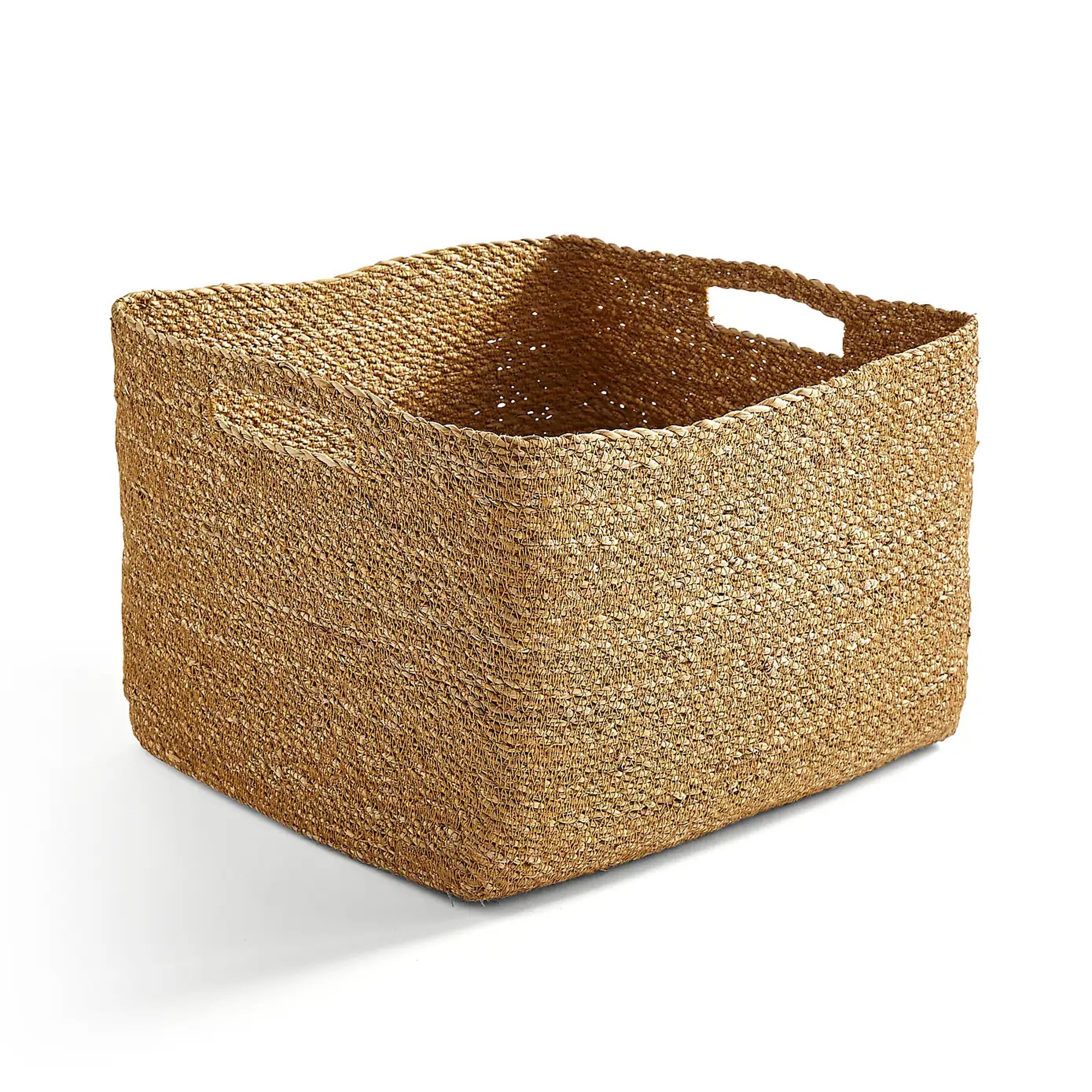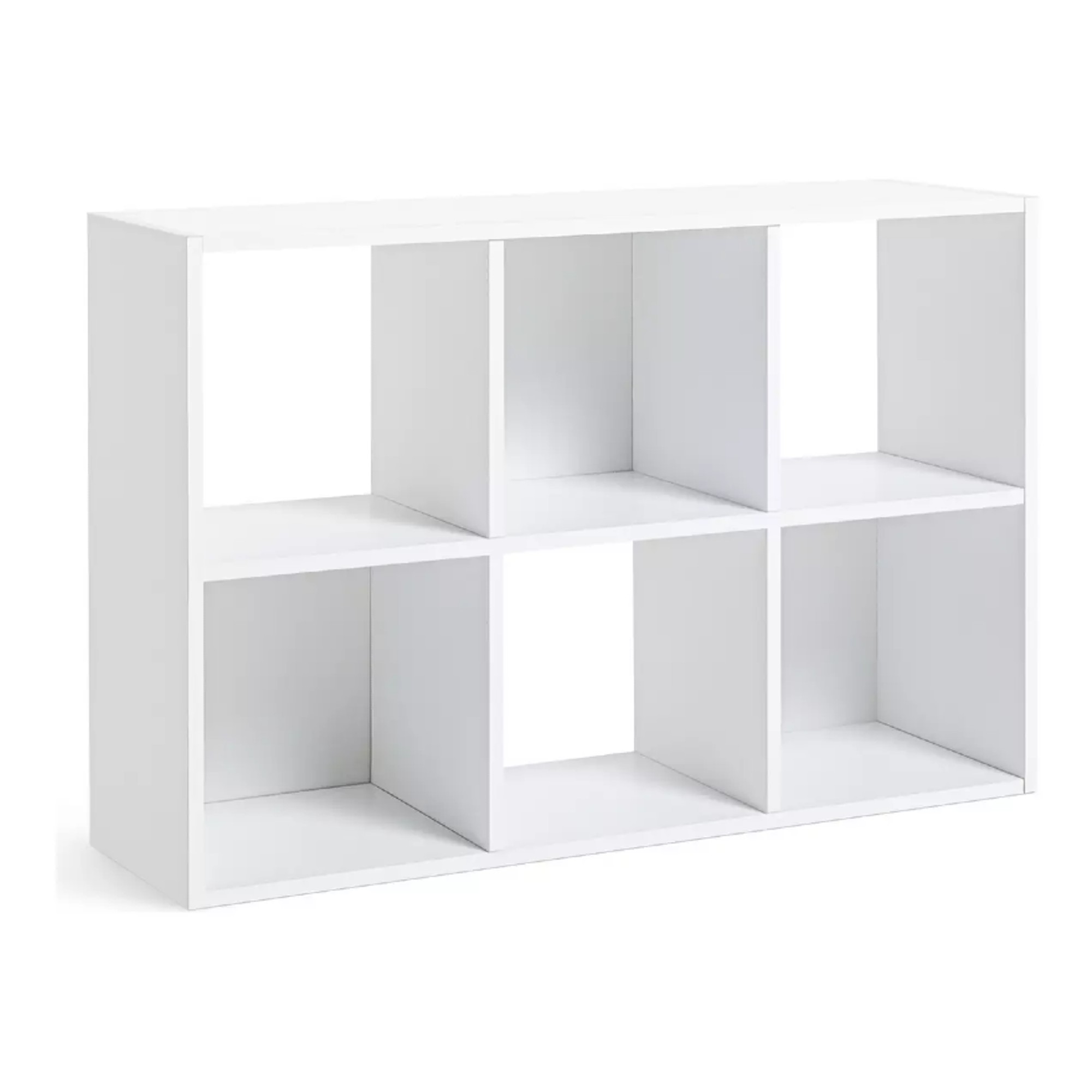18 garden office ideas for a serene yet functional WFH set-up in your outdoor space
Want to feel like you're working from the midst of your garden? Then a garden office is the way to go
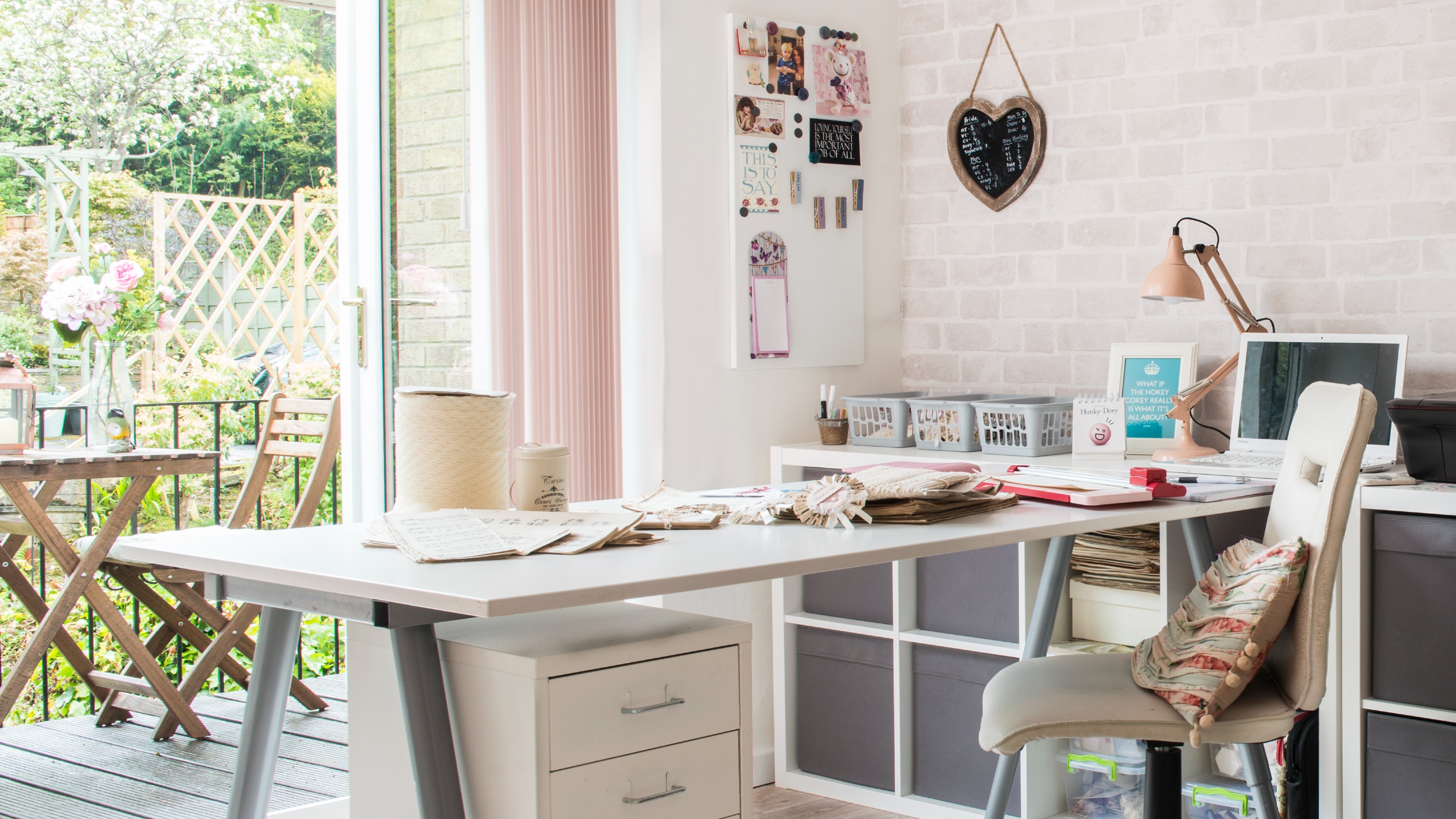
Sara Hesikova
If you’re lucky enough to have a sufficiently sized outdoor space and regularly work from home too, building yourself a garden office would make for the perfect and dreamy WFH set-up - especially when equipped with our garden office ideas to make the space both functional and stylish at the same time.
A garden office makes for the perfect alternative to any interior home office ideas as most homes tend to be already stretched to their limit when it comes to available space - and that’s without including a WFH nook. So whether you’re looking to build a brand new garden office in your back garden or want to convert your garden room design into an office space, our expert-approved tips and ideas are sure to lend a helping hand.
Garden office ideas to inspire
‘When designing the interior of your garden room for a home office, ensure the design is tailored to your specific needs, maximising the use of the available space,’ says Claire Garner, director of Claire Garner Interiors.
So while a garden office can offer a serene and inspiring working space that blurs the lines between the indoors and outdoors, there are also practicalities you’ll need to consider when designing this area.
1. Include a break-out area
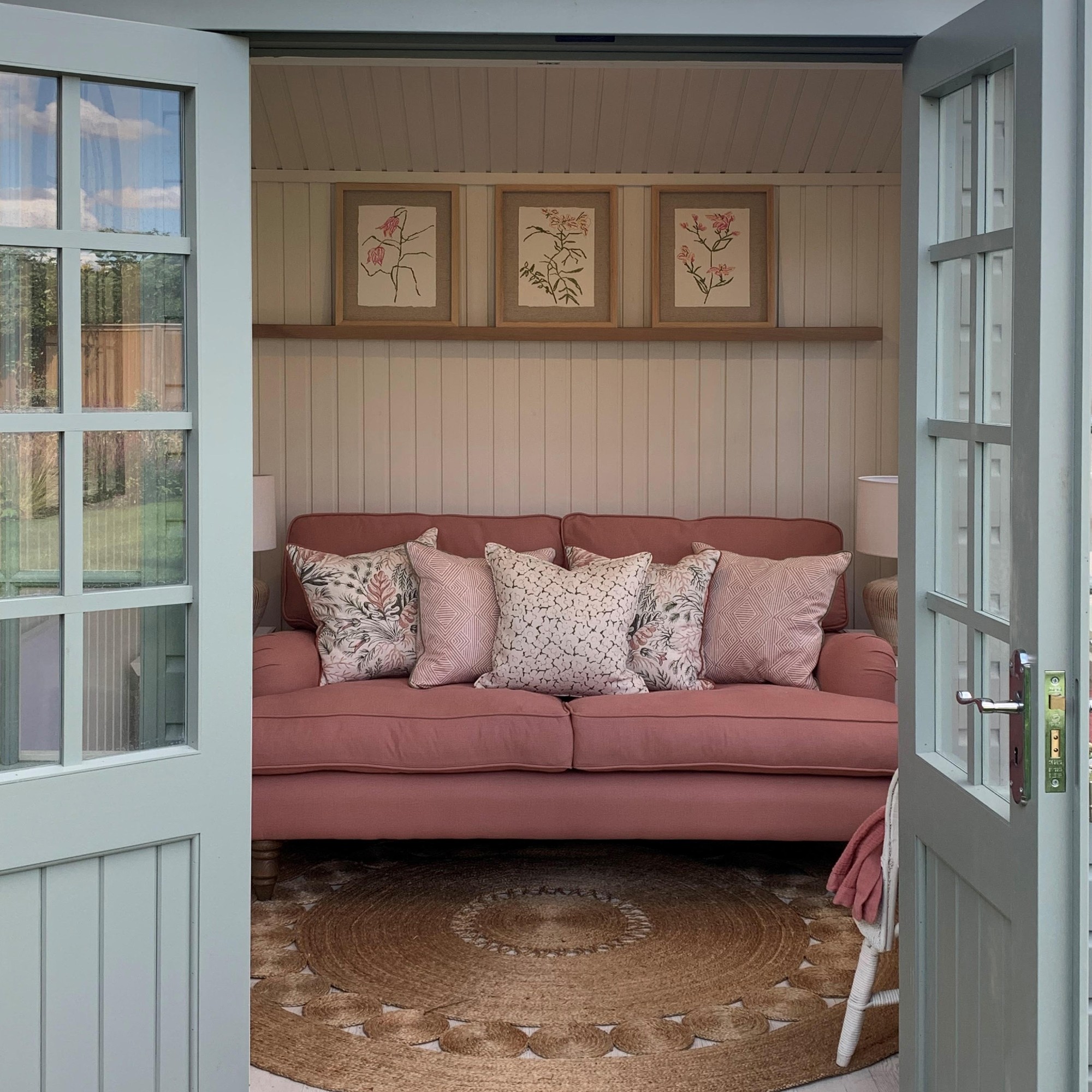
One of the expert tips on creating a workspace in your garden is to include a relaxing break-out area for when you’re tired and achy from constantly sitting at your desk and are in need of a respite.
‘You could incorporate some seating away from your desk for when you need to take a break, helping you to feel comfortable and cosy,’ says James Ewens, commercial director at luxury outdoor furniture brand Alexander Francis.
Jamie Jones at Open Space Concepts adds, ‘If you have the room, you can also look at including some softer furnishings – such as a cosy armchair to give you an alternate spot to work when you’re not feeling working at your desk.’
Get the Ideal Home Newsletter
Sign up to our newsletter for style and decor inspiration, house makeovers, project advice and more.
2. Incorporate large windows
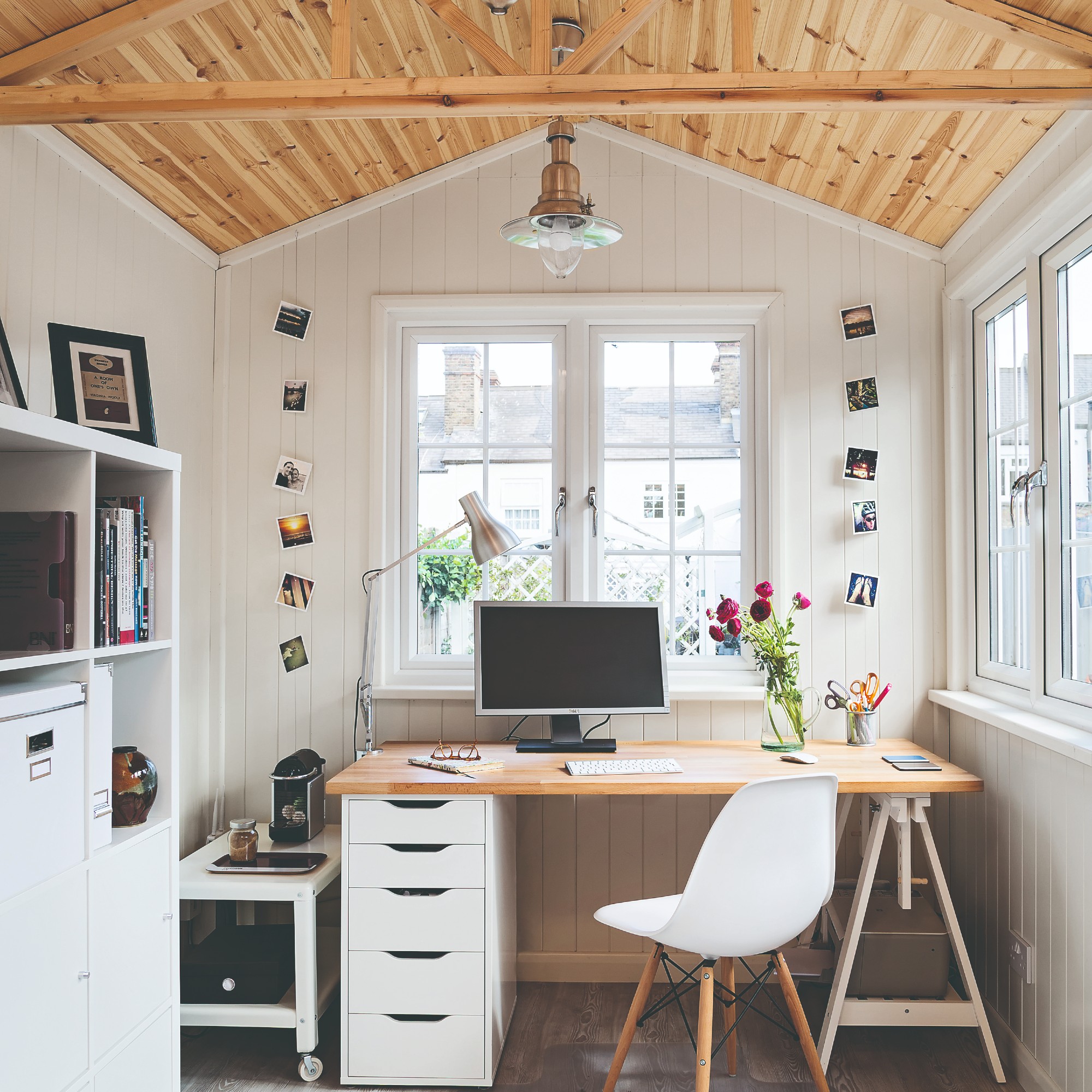
Incorporating large enough windows is important for two very different reasons, each equally as important as the other – one is optimal ventilation to prevent damp and the other is getting enough natural light in the space.
‘Garden offices can suffer from damp as they’re far more exposed to the elements than the inside of your home, so building with this in mind is essential. The most important thing to consider is good ventilation, so be sure to install windows and potentially even roof ventilation to minimise the chances of damp occurring,’ James says.
Claire continues about the importance of natural light, ‘Utilise large windows, skylights, or glass doors to bring in natural light. This not only makes the space feel larger but also connects the interior with the surrounding garden, enhancing the sense of being immersed in nature. For your desk, if possible, position this near a window to take advantage of the natural light, which will also help to enhance your mood and reduce eye strain.’
3. Put in enough storage
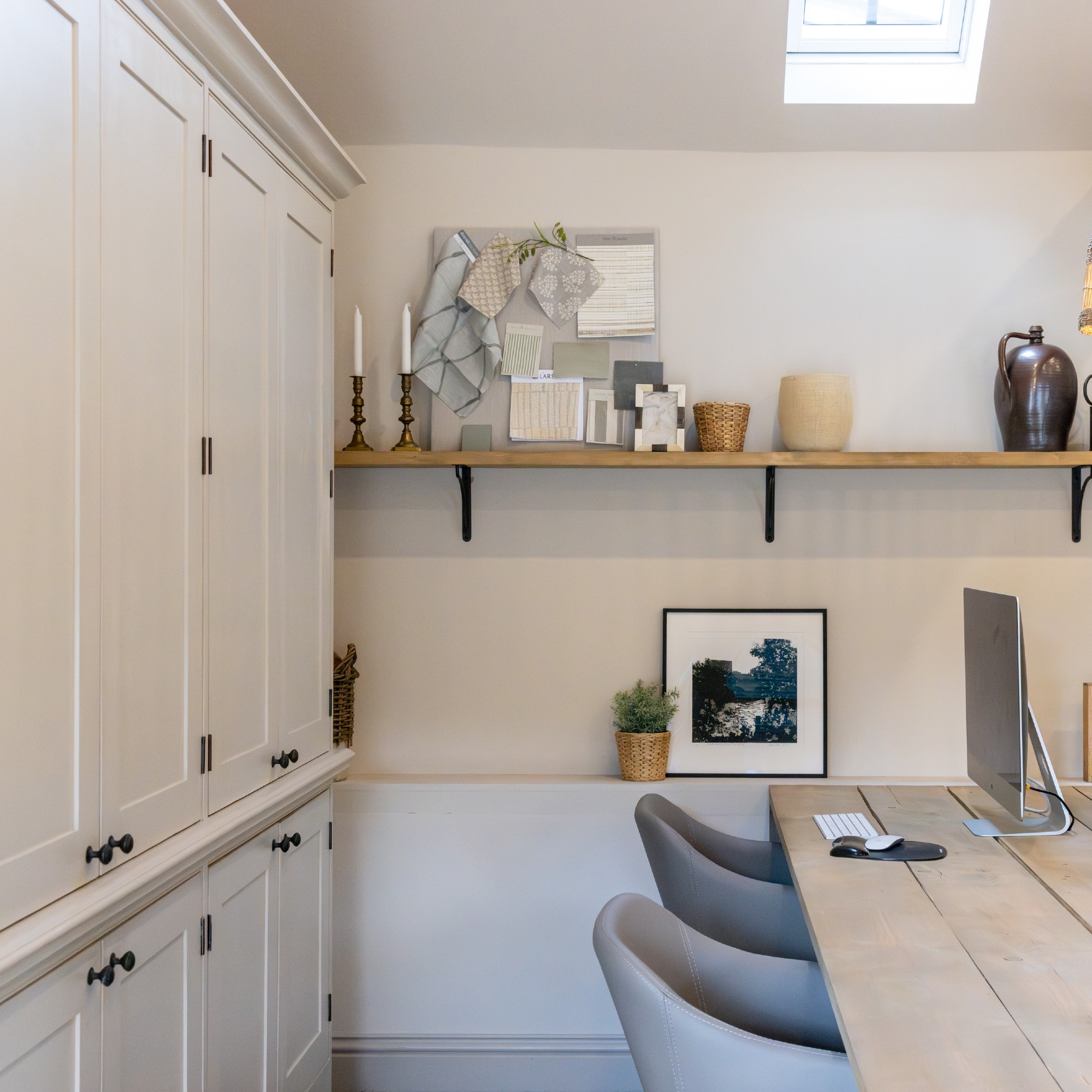
Home office storage ideas are crucial to keeping your working space organised and uncluttered – because the opposite can result in reduced productivity and motivation. And this applies to garden offices as much as it does to any other home office.
‘Storage is hugely important in a home office so try to incorporate storage solutions such as built-in shelving, filing cabinets, and multi-functional furniture like desks with drawers. This will help to keep your workspace organised and clutter-free, which all prevents distractions from your work. For smaller items, there are many beautiful stylish storage boxes and baskets available which will help to maintain a tidy working area,’ Claire recommends.
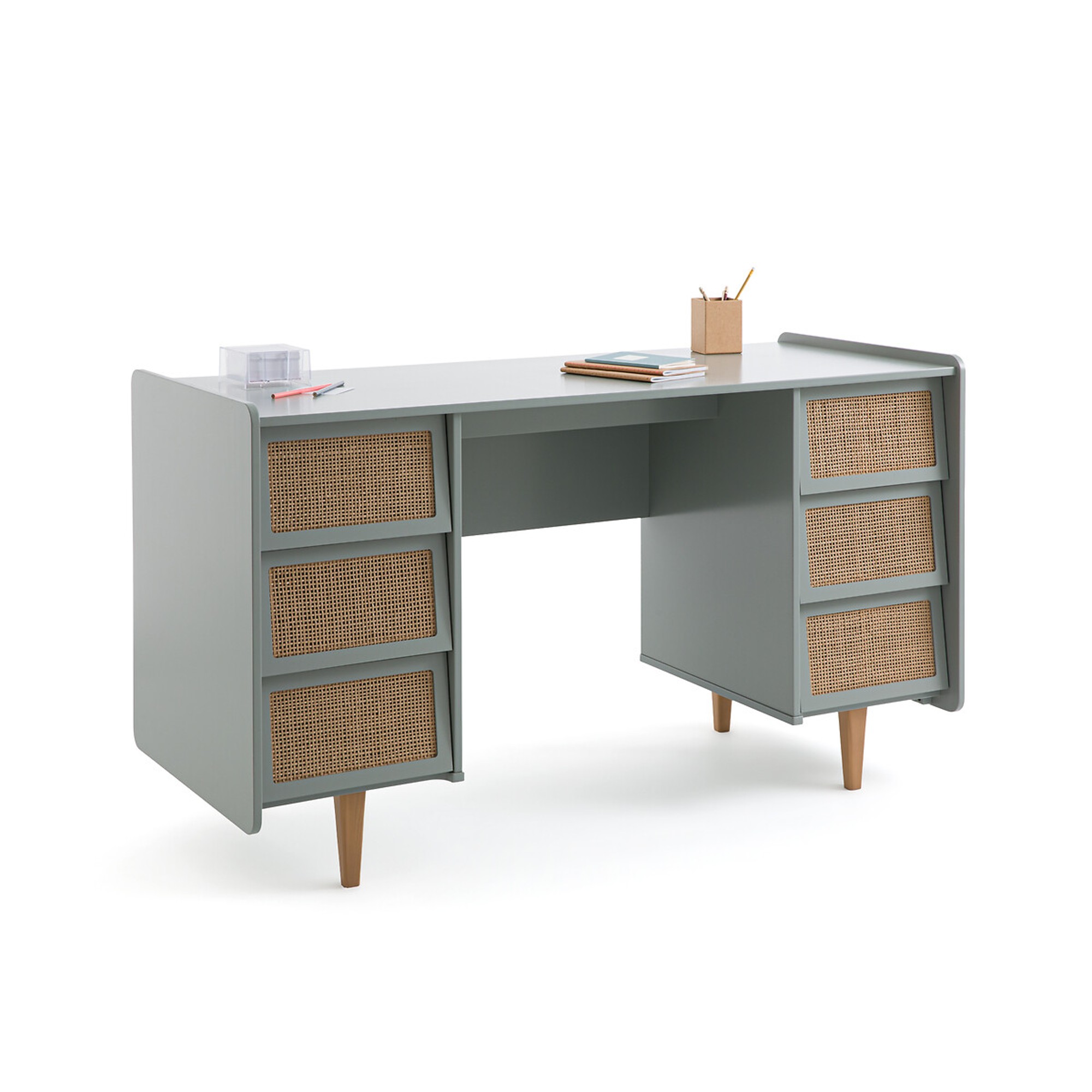
Boasting plenty of storage, this La Redoute desk is also perfect for a garden office for its nature-like green shade and rattan inserts that again reference the plants and nature growing outside the windows.
4. Add greenery with plants
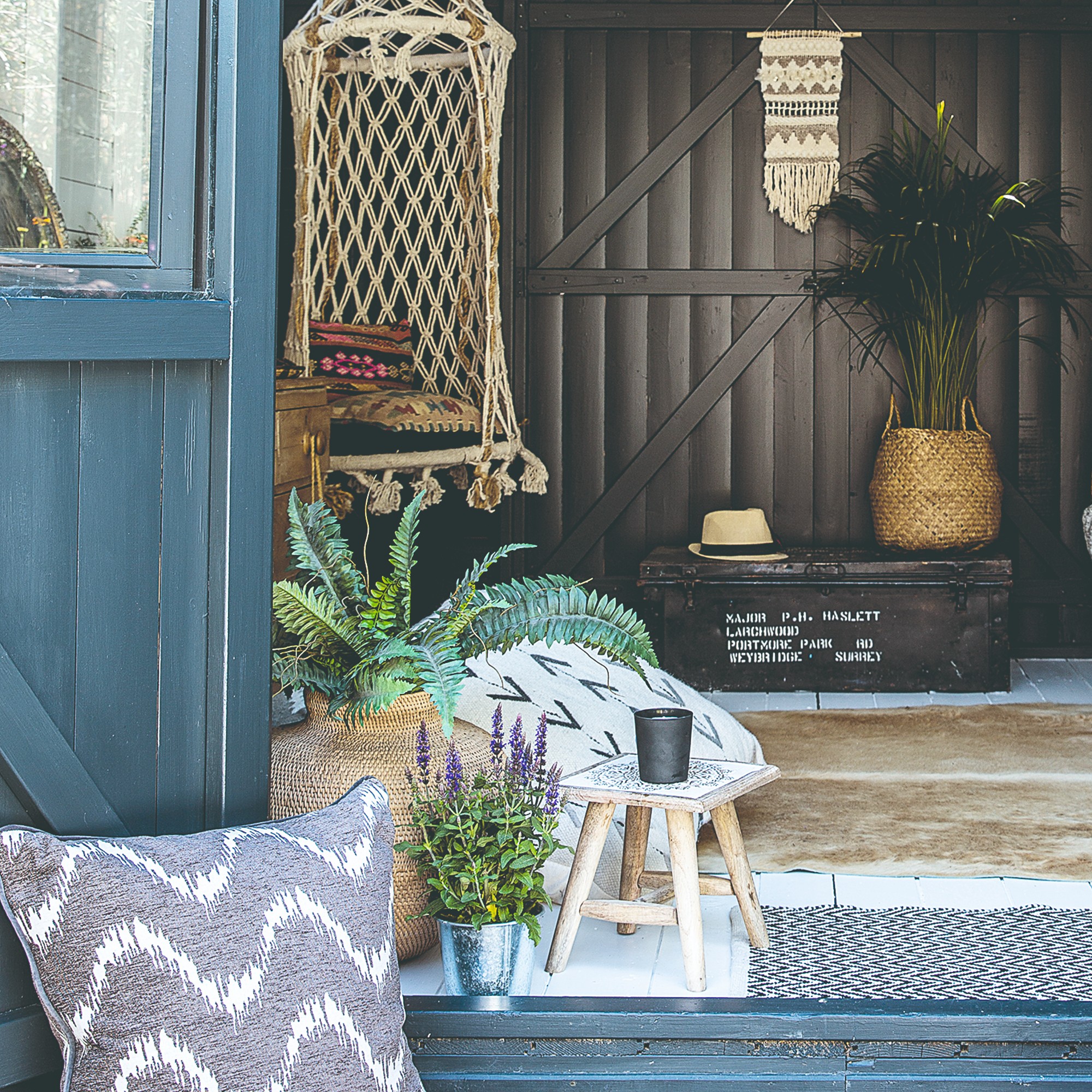
Just because your office space is surrounded by the garden and its greenery doesn’t mean that you shouldn’t incorporate some plants inside your workspace too. On the contrary, as it helps to blur the lines between the outside and inside, making you feel like you’re working from the actual midst of the garden.
‘Integrate plants and greenery to blur the lines between indoors and outdoors. Plants can add colour, texture, and a sense of tranquillity to the space,’ Claire says.
5. Go for glass walls
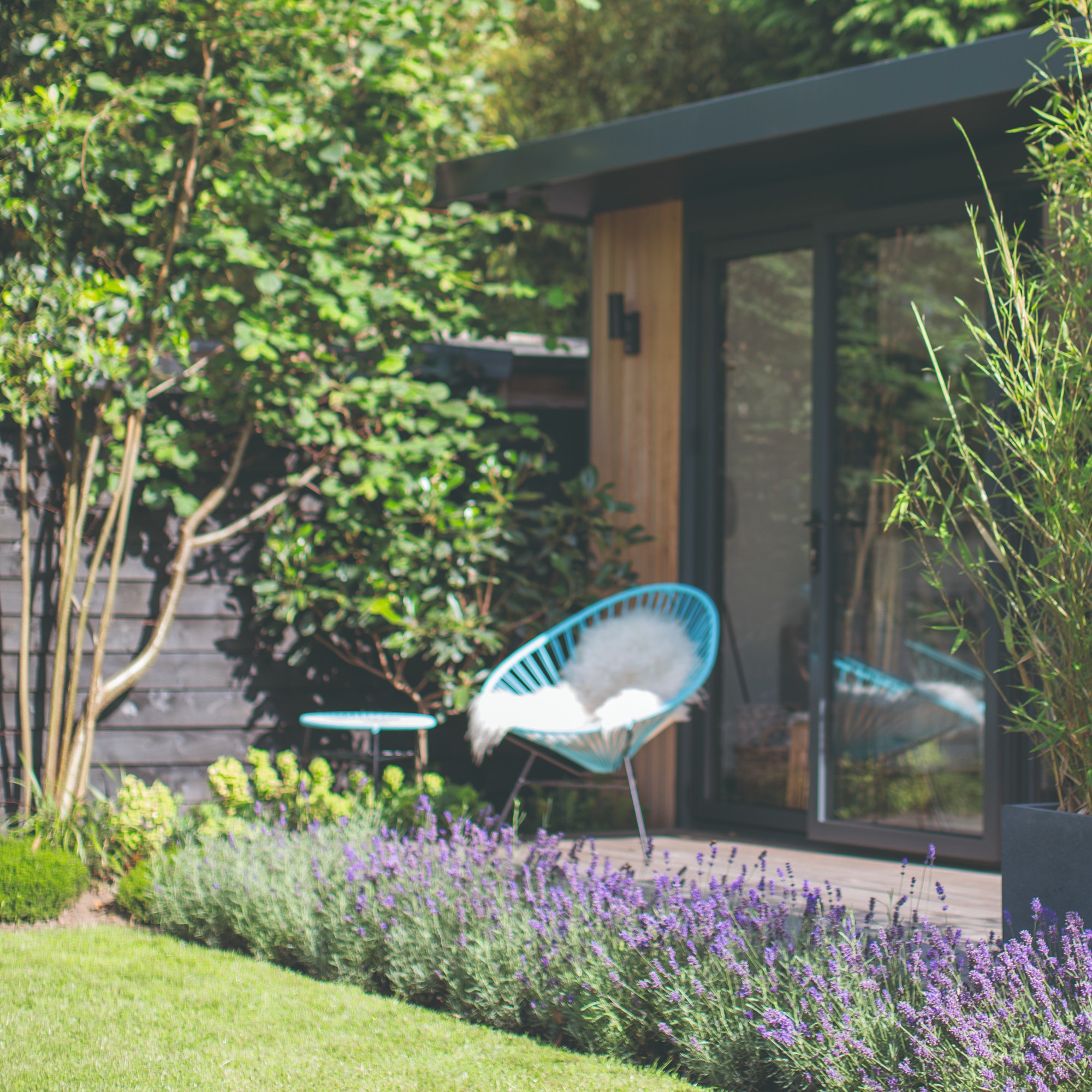
You can take the idea of large windows to the extreme by opting for glass walls instead – as glass garden offices and garden rooms are apparently one of the latest garden trends.
‘One of the more popular garden office styles is using glass walls. Not only does this maximise the amount of light entering your office to improve your productivity, but also helps to keep the space warmer during cooler temperatures. This design also lets you fully enjoy your garden, so might be one to go for if you’re particularly green fingered,’ James says.
Jamie agrees and adds, ‘We have seen predominantly glass garden rooms and offices become popular – possibly because whilst they emulate working in a more “corporate” setting, the location of them also allows the worker to feel more in-tune with nature.’
6. Make it feel like it's always been there with planting
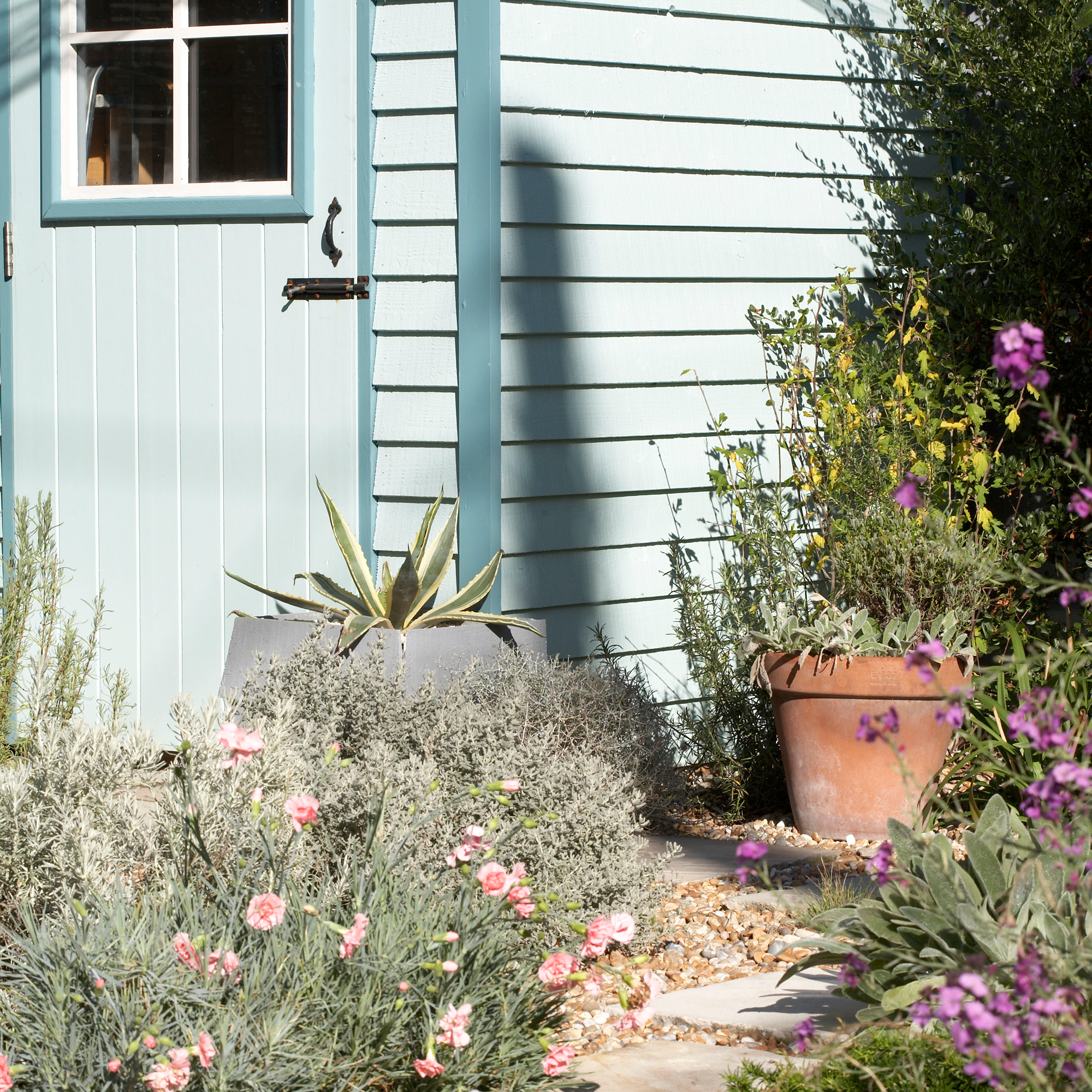
'Consider the path you will use to reach it; borders, trees, and grass may all be impacted,' says garden designer Susan Hampton. 'If you work out how these are going to be changed you can soon make your new building looks as if it really belongs rather than being a hasty decision.'
Susan says that even a brief consultation with a garden designer can help you get these decisions right so that you can carry them out in your own time. Incorporating a garden office into your space doesn't have to be expensive either. It is quite likely you will have things in the garden that can be lifted and replanted to save money and add maturity to the scheme, Susan comments.
7. Go for an indoor/outdoor design
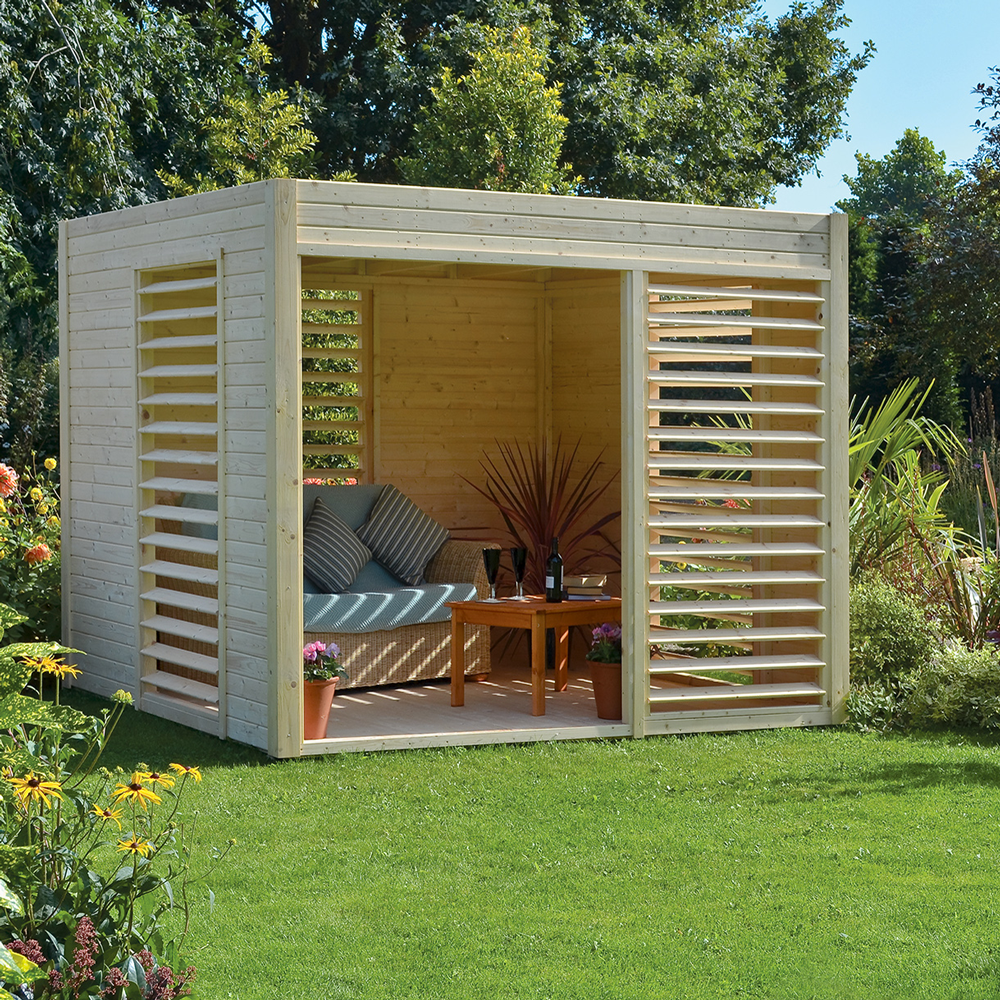
Take your home office outside but retain the same level of decor as that of within your home. Paint an on-trend black feature wall and hang decorative accessories to dress the space as if it was inside your home. The sense of familiarity will prove comforting. Create an office 'break-out space' with jute floor cushions and informal seating, to escape the screen and enjoy a garden break with a book during your lunch break.
8. Think about viewpoints
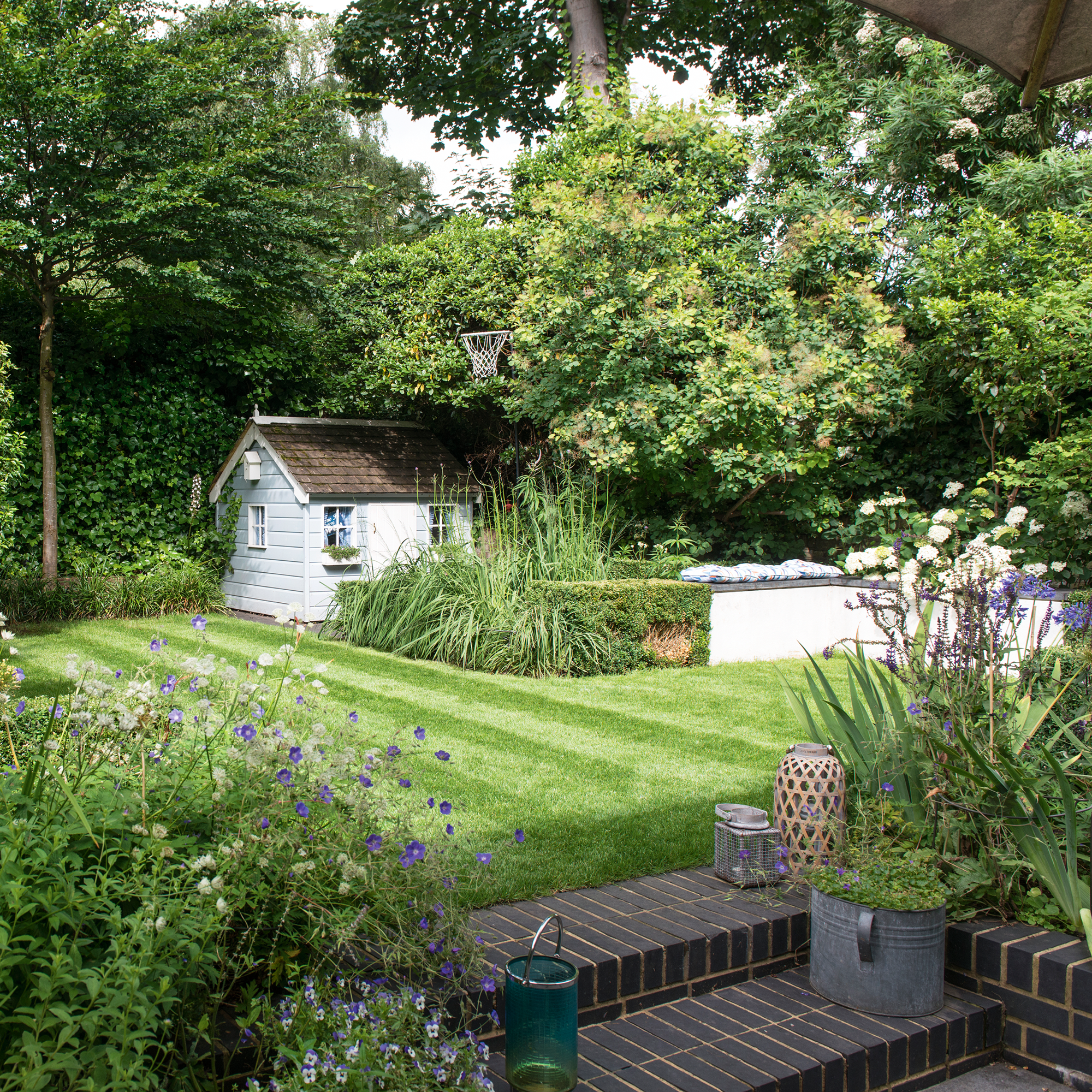
'Adding a room in your garden is going to make a big difference to your life by giving you some extra space,' says Susan Hampton. 'But it is also going to have a big impact on your garden.
'Make sure it is a good impact by thinking through how you position the new building – think about the view you have from the house to the garden room, and the view you have when you are inside that new room.'
9. Keep it simple
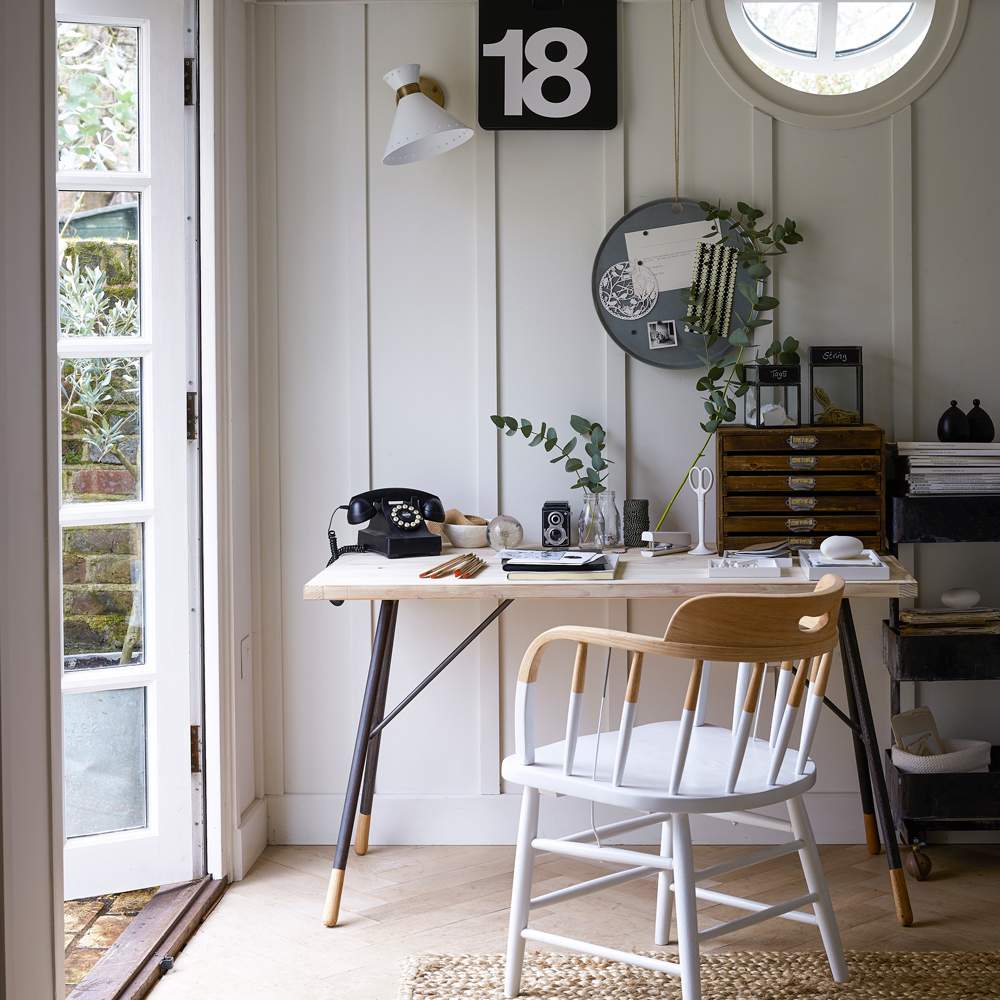
If you already have a summerhouse, turning it into a home office will be a natural transition. Keep the colour palette muted and make the furniture versatile so that it can still function otherwise as a relaxing summerhouse when work hours are over. Flexibility is key to making the space work for your needs.
If you're revamping an old shed, make sure it's structurally sound. Outdoor building company Lidget Compton says to make sure the building hasn’t succumbed to any damages over winter. Check that the doors and windows, if it has them, are sealed correctly. This will prevent any work equipment from getting damaged in bad weather.
10. Repurpose a side return
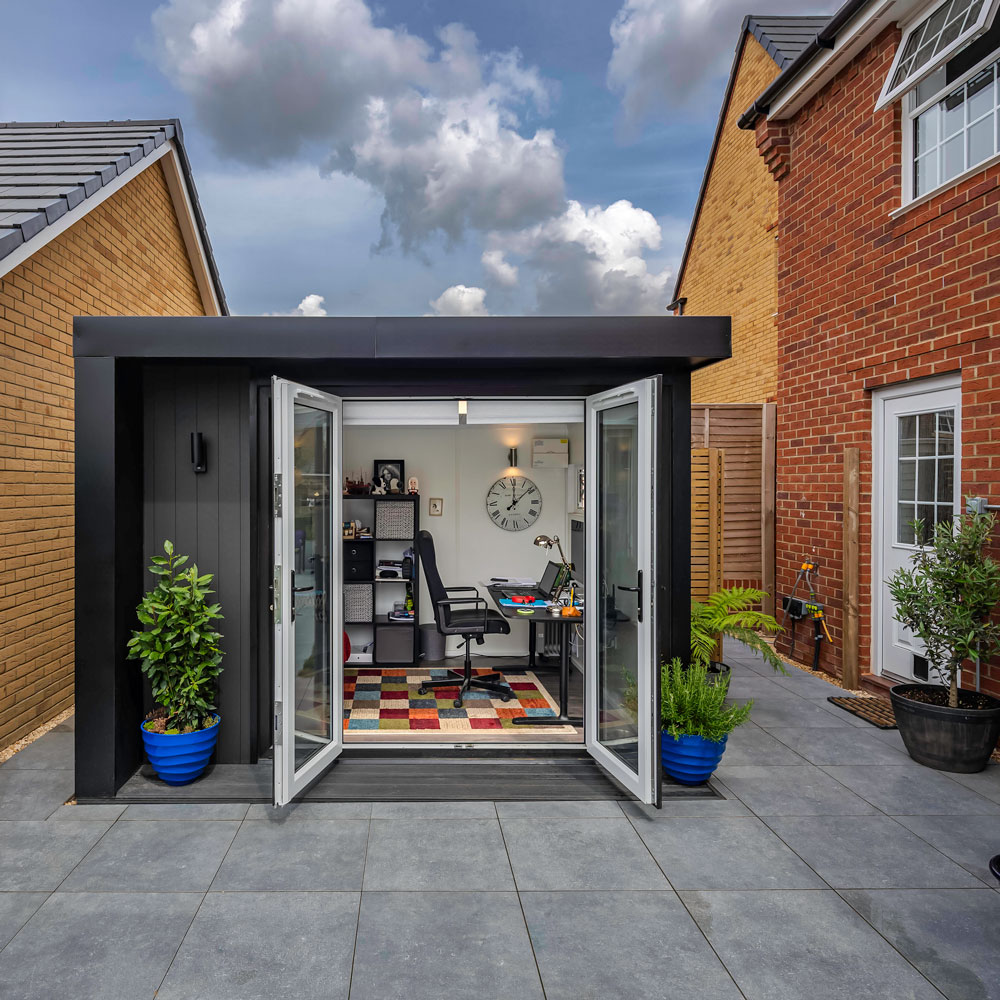
Use the main space of your garden to build a garden room for your now-permanent home office. Garden offices became the hero garden room during the pandemic.
'With most of the country encouraged to work from home, making space to focus on work and create a work-life balance seemed an impossible task,' say Green Retreats. 'A garden room offered a solution to both! Creating space away from the distractions of home, as well as being able to close the door at the end of the day to properly switch off.'
‘I think a garden room is a really great place to go and work, particularly if you can just get that sense that you leave the house, even if it's four steps,’ says TV presenter and property expert Sarah Beeny. ‘It’s really good for your mind to separate your work and your home.’
11. Paint the walls to boost creativity
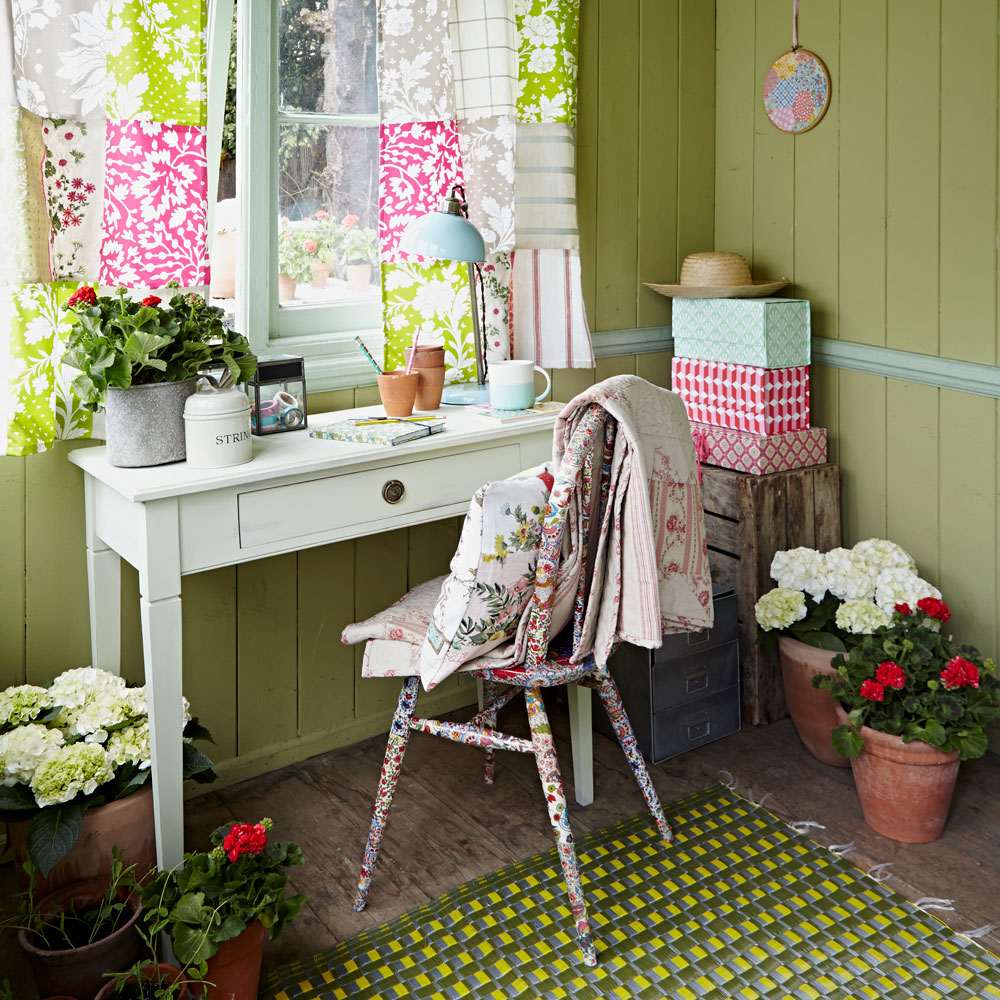
A home office needs to be an environment that provides a balance of both calm and motivation, so the colour you choose to paint the walls needs to be a careful consideration. Green is the colour we associate most with the greenery from nature, so it can be quite motivational. At the same time, because being at one with nature soothes the soul, it's the ideal colour for creating a serene space in which to work.
12. Hang curtains to prevent glare on screens
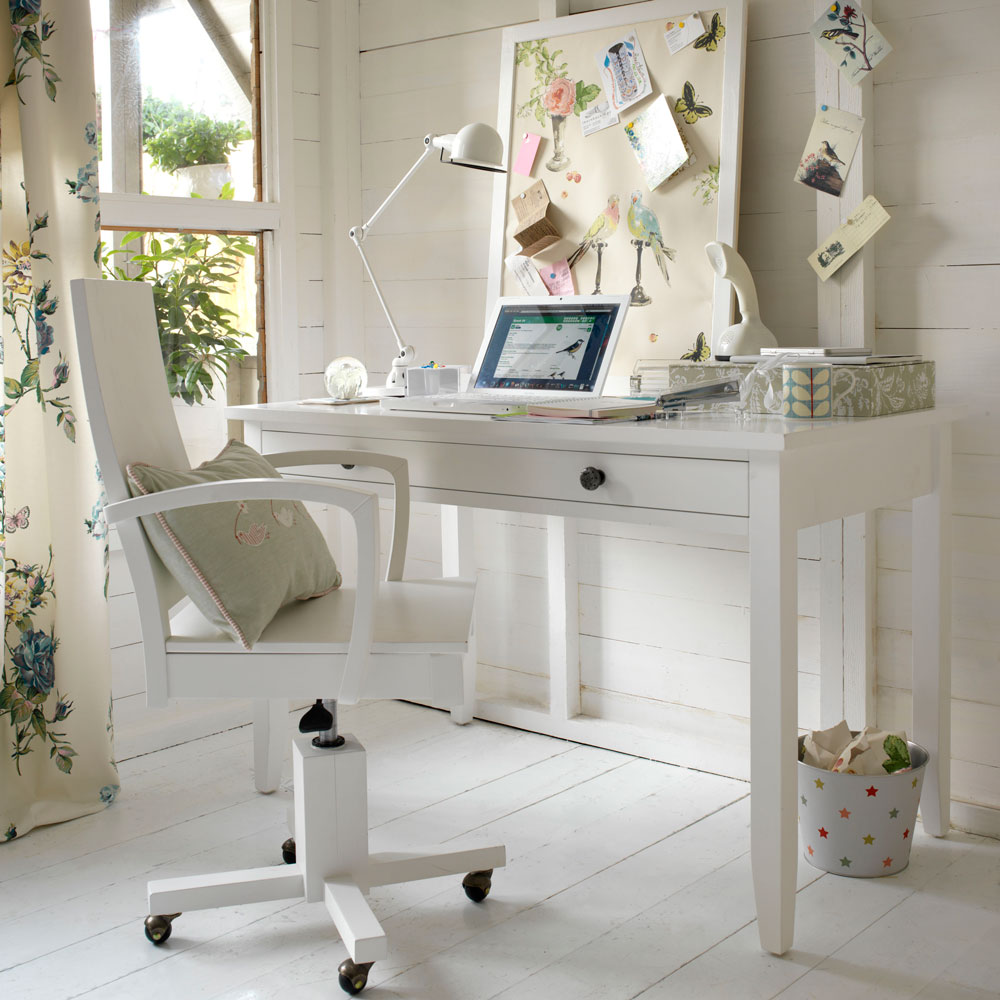
Wherever you decide to set up your garden office, glare on a computer screen is inevitable. There are a number of ways to minimise the brightness to save yourself squinting at your screen – the most obvious for a repurposed summer house idea is to hang a lightweight curtain, to pull across when needed. Practical and pretty to dress the space.
A spokesperson from Chiltern Garden Buildings also suggests, 'A screen hood for your laptop will help you to see your screen, even during the middle of the day and it will also help to keep your laptop cool and shaded. You could even look at covering your screen with an anti-glare filter which will help eradicate the mirror-like reflections from your surroundings.'
13. Opt for privacy with a screen
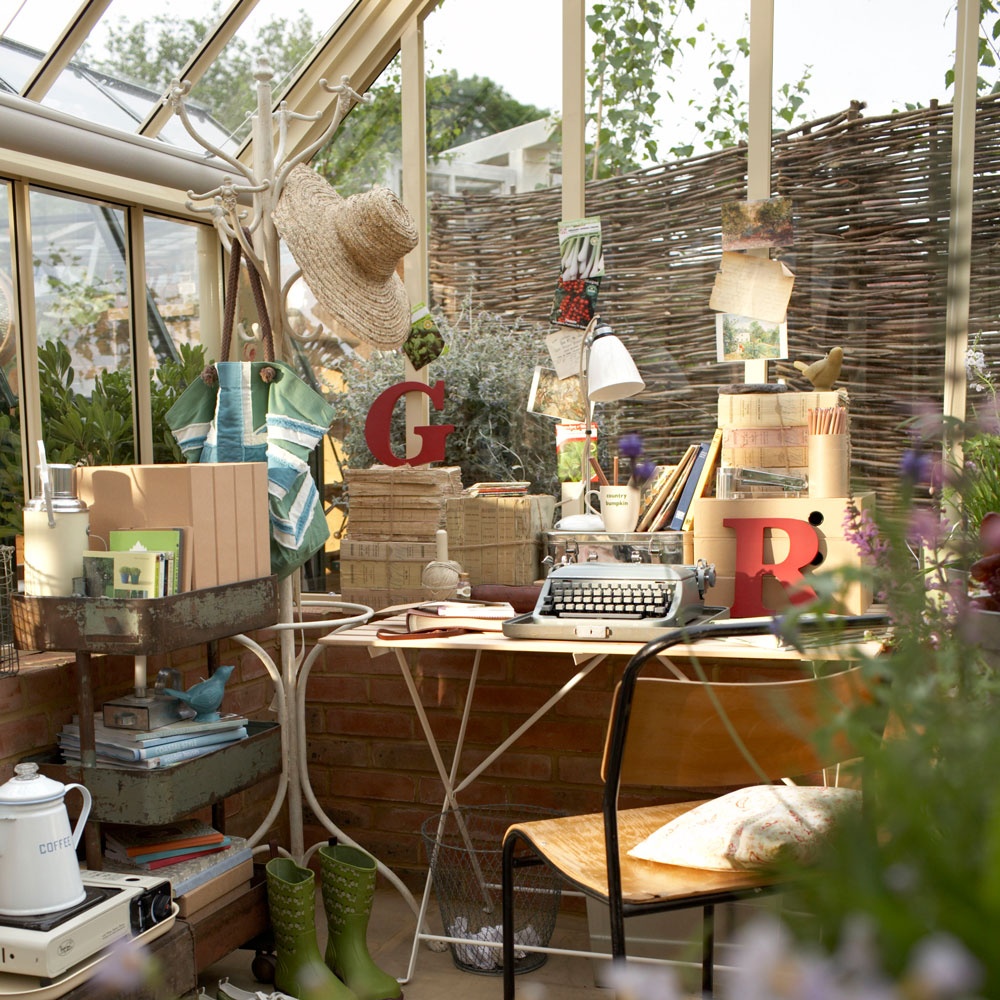
Save being distracted from the tasks at hand by screening off one area for when you need to concentrate. This might be more necessary if you're not the only one who wants to hang out outside and enjoy the garden during working hours. Adding decorative screens or planters is a great way to add privacy and separate workplaces to ensure a successful day's work, without interruption.
14. Put a garden pod in place
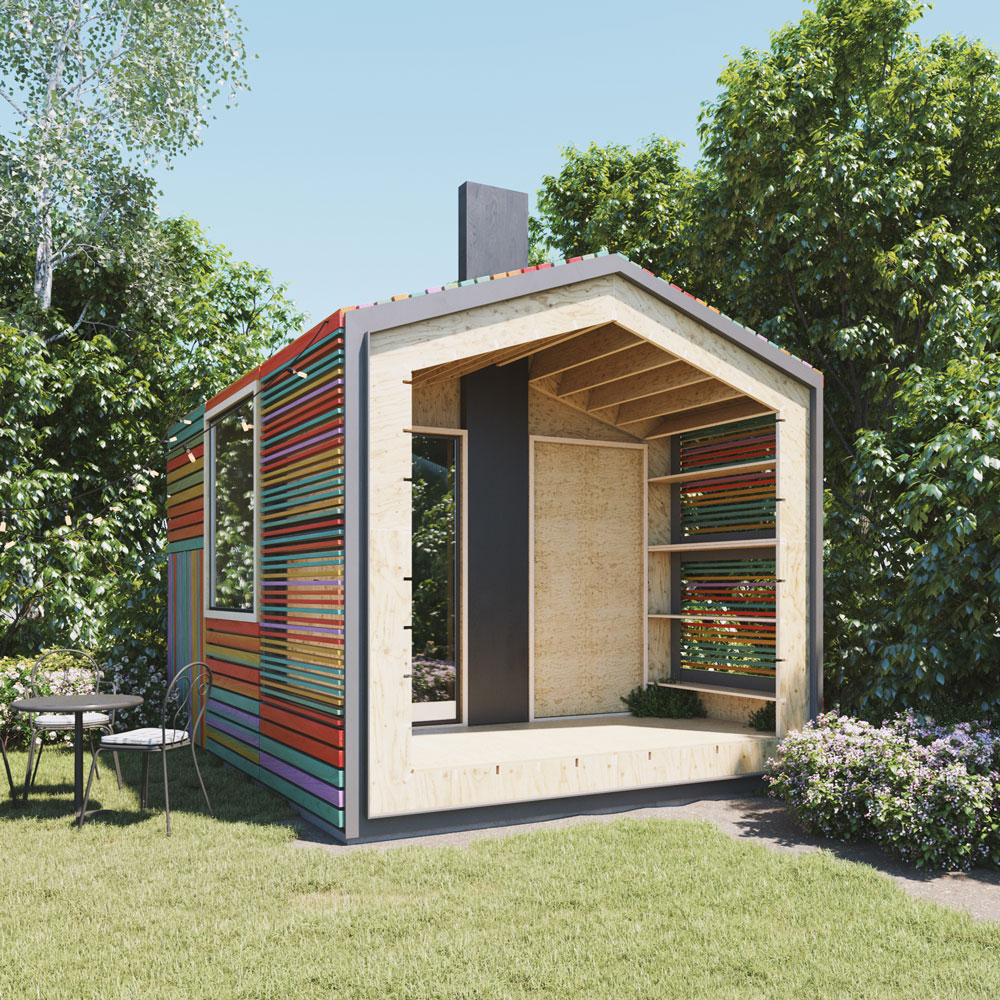
Pods for the garden come in many forms, from outdoor office to guest bedroom, hobby room to teenage hangout. Pods for the garden tend not to require planning permission or foundations, which makes them quick to buy and speedy to install.
Award-winning design and architectural practice JaK Studio have created modular cabins to install in your garden to offer the ideal space for a home office solution. The Module Cubed (HOM3) designs are inspired by the popular online game Minecraft. The completely customisable modular garden rooms are ideal for contemporary home working.
15. Stay connected
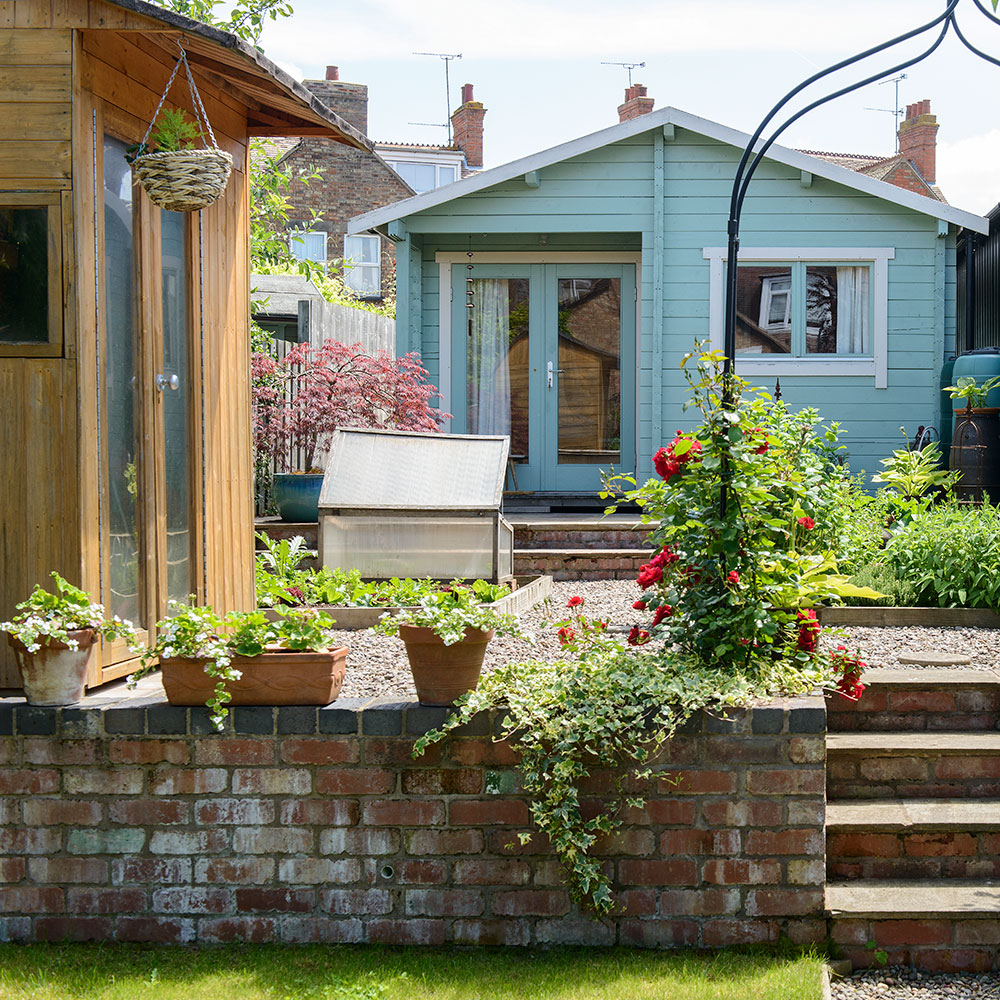
One of the key things you need to consider when setting up a working spot outside is a location that is close enough to the Wi-Fi. This will determine where best to place your garden office set up.
'Moving your office outside could mean your home connection becomes interrupted and sporadic, which will cause more headache and stress when joining any virtual meetings, conferences or when making any important calls If you can, move the router closer to your chosen spot so your signal strength is the best it can be' advises a spokesperson for Chiltern Garden Buildings. 'If you’re unable to move your router, a Wi-Fi extender will help strengthen your connection.'
16. Repurpose garden furniture
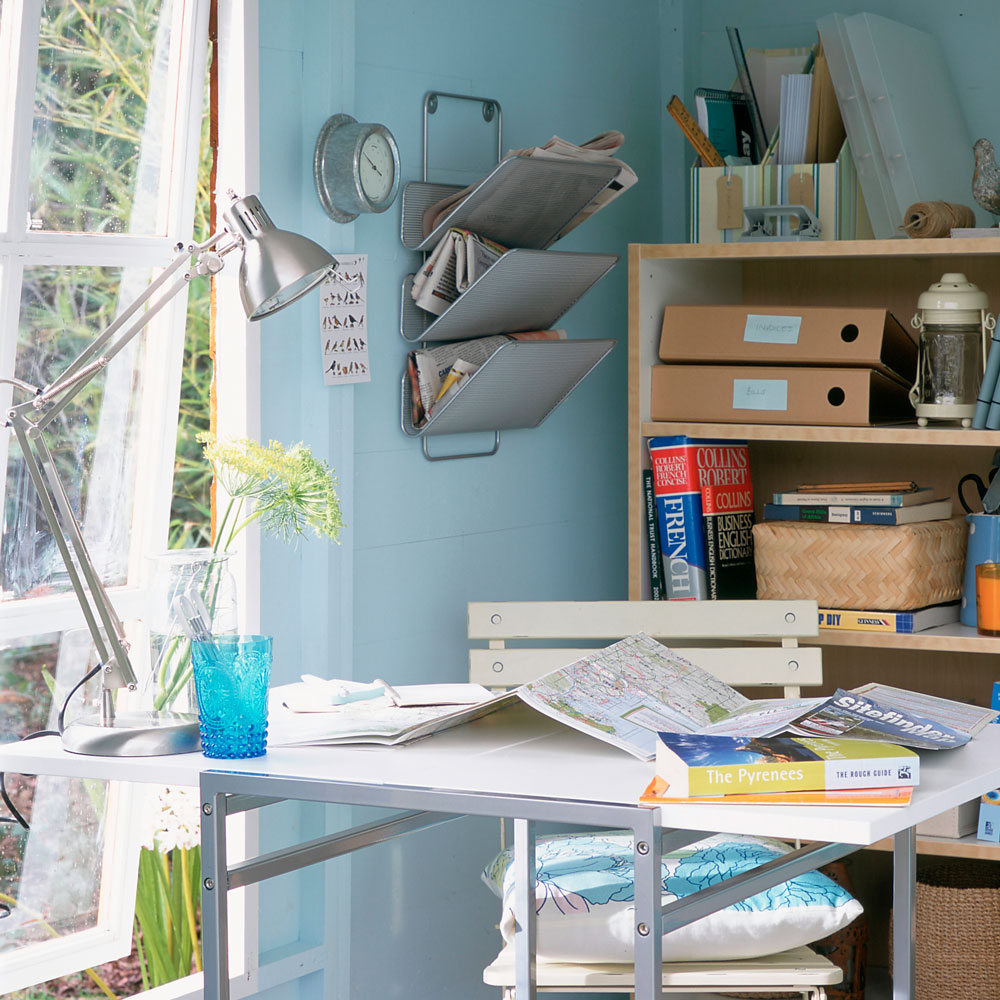
If you're already saving money by repurposing a garden shed you may want to keep costs in check with a few other savvy solutions. Repurposing the outdoor furniture is a sure-fire way to save on spending.
'Although working from the hammock may sound cozy, if you’re going to be working outside for a long stretch, your best bet is to set up shop at a traditional outdoor dining table' says Riverbend Home’s chief home officer, Mark Feldman. 'If you want a standing desk option outdoors, two alternatives are repurposing a potting bench or a bar height table. Consider the same ergonomics as your traditional desk setup.' Add cushions to bistro chairs to pad the seat and be sure to take frequent breaks to stretch in between long spells of sitting at a desk.
17. Seek shade
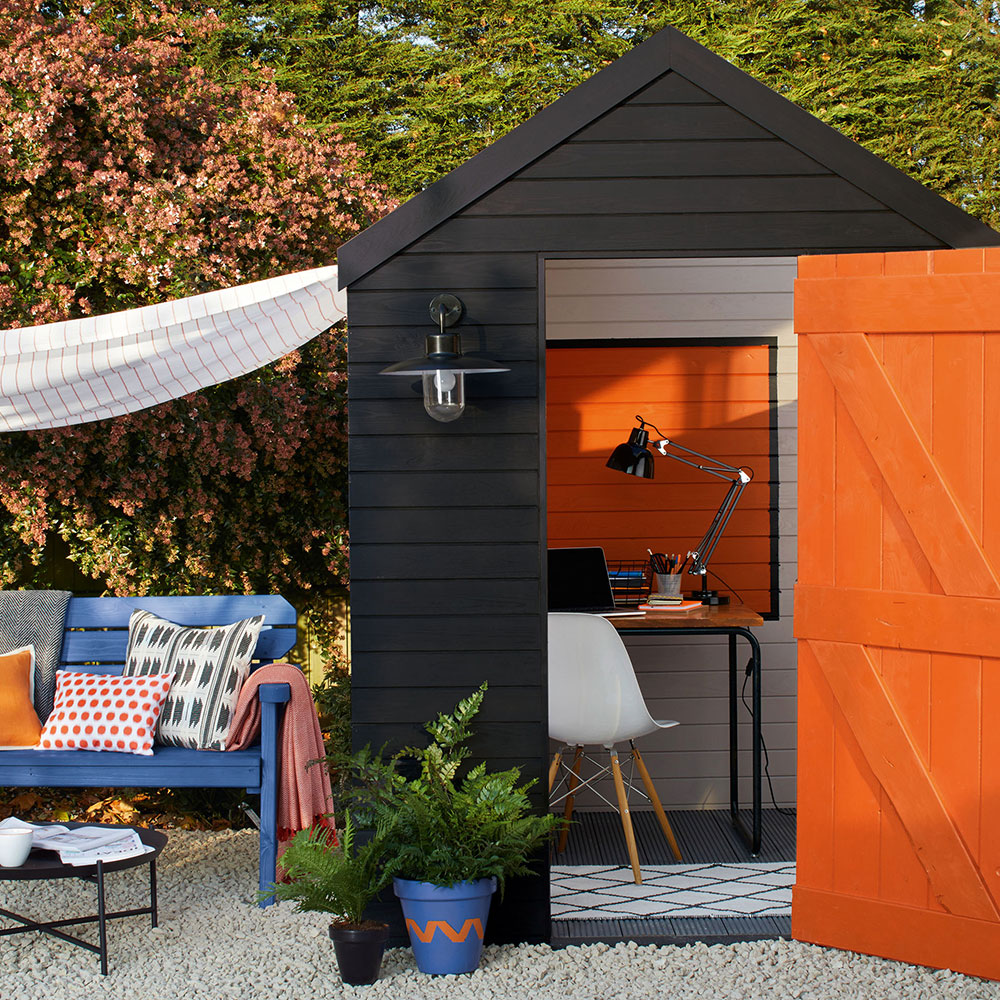
Whether it is 15 degrees or 35 degrees, protecting yourself from the sun when working outside is essential. Especially if you're used to working indoors, the powerful rays may be a shock to the system. If your garden is a suntrap if you do venture outside to work on a bench, ensure you have the appropriate protection.
A canopy will provide shelter to seek shade, protecting your skin from the UVA and UVB rays and your electrical equipment also. Retreat inside when it's too hot to handle, the shelter of a garden office in a jazzed-up shed will provide a welcome escape.
18. Welcome warmth with rugs
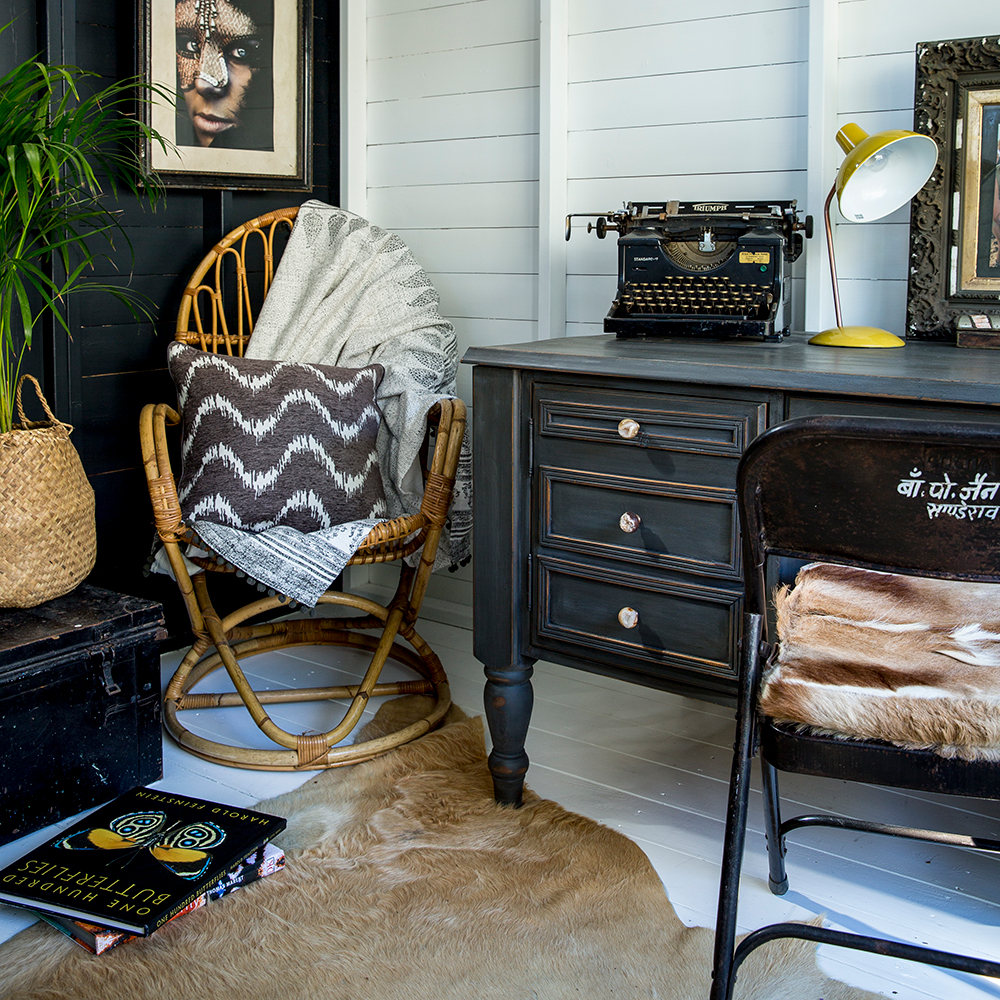
Use rugs to layer the floors to make the space feel more inviting. The homely touch will add a certain feeling of warmth but by blocking any potential draughts from coming through the floorboards it will literally warm the room too.
'We would suggest opting for a accent, more neutral rug to soften and add texture to the room,' says Jamie Jones at Open Space Concepts.
FAQs
Is it cheaper to build or buy a garden office?
While it might be cheaper to build your garden office yourself, hired experts will have the expertise on how to best build a garden room or a garden office with all the hidden costs etc.
‘Like most projects, choosing to build a garden office over buying one is going to be cheaper. The trade off in saving on labour and installation costs is the time it takes to do it yourself, so if you’re willing to put in the work to cut costs then DIY is the way to go,’ says James Ewens, commercial director at Alexander Francis.
Jamie Jones at Open Space Concepts continues, ‘Whilst you might be saving money - building an insulated, and weatherproof garden office takes a high level of skill and without this professional guidance, mistakes will be made that may cost even more money in the long term or render your garden room useless. There can also commonly be hidden costs with these things that you might not be aware of or take into account. A professional company is much more likely to be aware of these and can mitigate these costs by doing a site survey before the build.’
Do you need planning permission for a garden office?
'You have to be a little bit careful on garden buildings because you have to make sure that you don't need planning permission,' property expert Sarah Beeny warns. ‘And it depends on how big your garden is, how high the building that you're planning on putting in is, how close the neighbours are. You do need to check with planning permission and building regs. You can't have a habitable room out there without building regs, so there are a few rules you need to comply with.’
For most cases it's unlikely you will need planning permission for a garden office, because the structures are often repurposed sheds and summer houses – which are all in the permitted development guidelines. Garden pods tend not to require planning permission or foundations either, which makes them quick to buy and speedy to install.
'If your building is shorter than 2.5m, doesn't take up more than 50 per cent of your garden, or isn't going to be placed in your front garden, you shouldn't require planning permission' says Charles Walton.
'However, this will largely depend on local councils and neighbourhood policies, as well as the response of your immediate neighbours. Planning permission rules can vary by area, so we would strongly recommend checking with your local council.'
Do garden offices add value to a house?
Similarly to garden rooms, garden offices too can add value to your house, according to experts.
‘Similar to other outbuildings such as sheds and greenhouses, garden offices do indeed add value to your property. The consensus is that a garden office can add around 5-10% to your property’s value, so you can very much see building one as a financial investment,’ advises James Ewens at Alexander Francis.
Jamie Jones at Open Space Concepts translates the percentage to an actual sum and further explains the popularity of garden offices. ‘With many Brits still working from home a few days a week and hybrid work looking like it’s not going anywhere anytime soon, garden offices are becoming increasingly sought after by estate agents to impress buyers. In fact, according to estate agents Barrows & Forrester, installing a garden office could boost the value of your home by at least £22,000.’
This only goes to show that garden offices are truly worth it if you have the space.
Tamara was Ideal Home's Digital Editor before joining the Woman & Home team in 2022. She has spent the last 15 years working with the style teams at Country Homes & Interiors and Ideal Home, both now at Future PLC. It’s with these award wining interiors teams that she's honed her skills and passion for shopping, styling and writing. Tamara is always ahead of the curve when it comes to interiors trends – and is great at seeking out designer dupes on the high street.
- Sara HesikovaContent Editor
-
 Will a conservatory add value to your home and how can you maximise it?
Will a conservatory add value to your home and how can you maximise it?This is what the pros say
By Amy Reeves
-
 I’ve been looking for a new signature scent for my home and The White Company's new fragrance is the exact summer holiday smell I needed
I’ve been looking for a new signature scent for my home and The White Company's new fragrance is the exact summer holiday smell I neededSantorini smells fresh, summery and sophisticated
By Kezia Reynolds
-
 How to remove algae from garden walls in five steps – and the cleaning product experts rave about for tackling it fast
How to remove algae from garden walls in five steps – and the cleaning product experts rave about for tackling it fastExperts share their top tips for getting garden walls algae-free
By Katie Sims
-
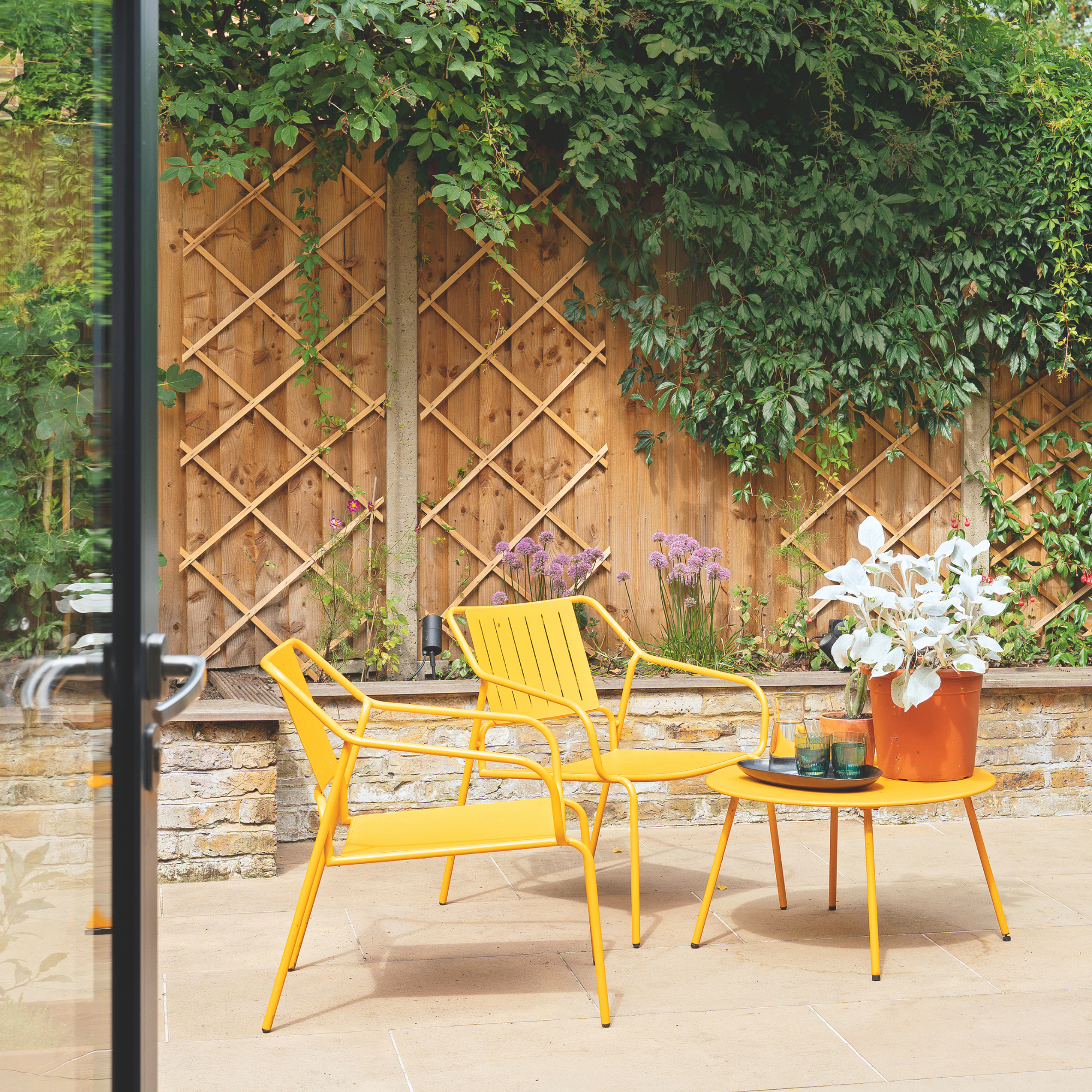 I’m seeing pastel garden furniture at all my favourite brands this spring, but QVC’s sorbet collection impressed me the most
I’m seeing pastel garden furniture at all my favourite brands this spring, but QVC’s sorbet collection impressed me the mostFresh pastel shades are a great way to liven up your outdoor space
By Kezia Reynolds
-
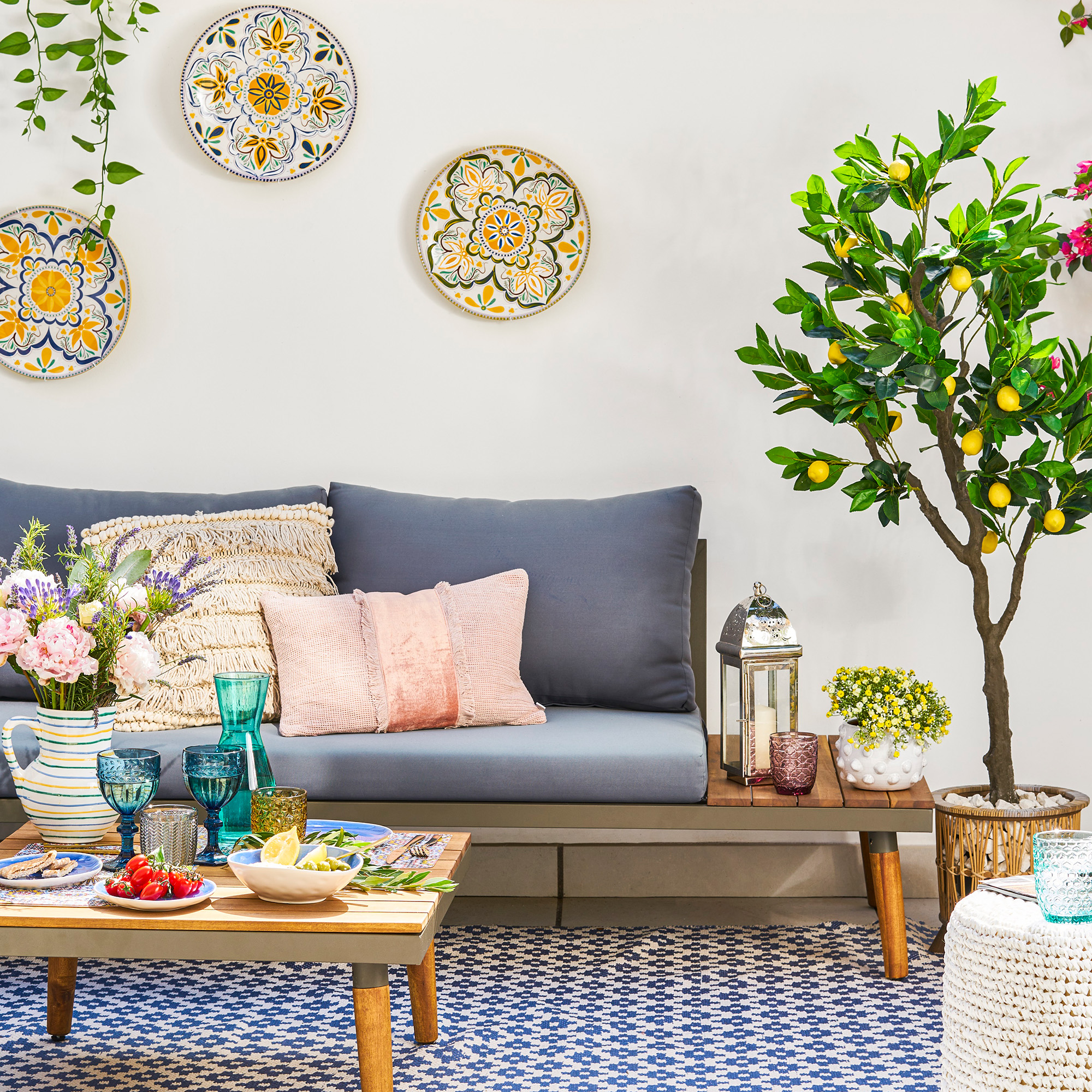 I spent the afternoon looking through Wayfair's garden sale – these are the 6 pieces I'm buying immediately for summer
I spent the afternoon looking through Wayfair's garden sale – these are the 6 pieces I'm buying immediately for summerThese are my must-have garden buys from the sale
By Holly Reaney
-
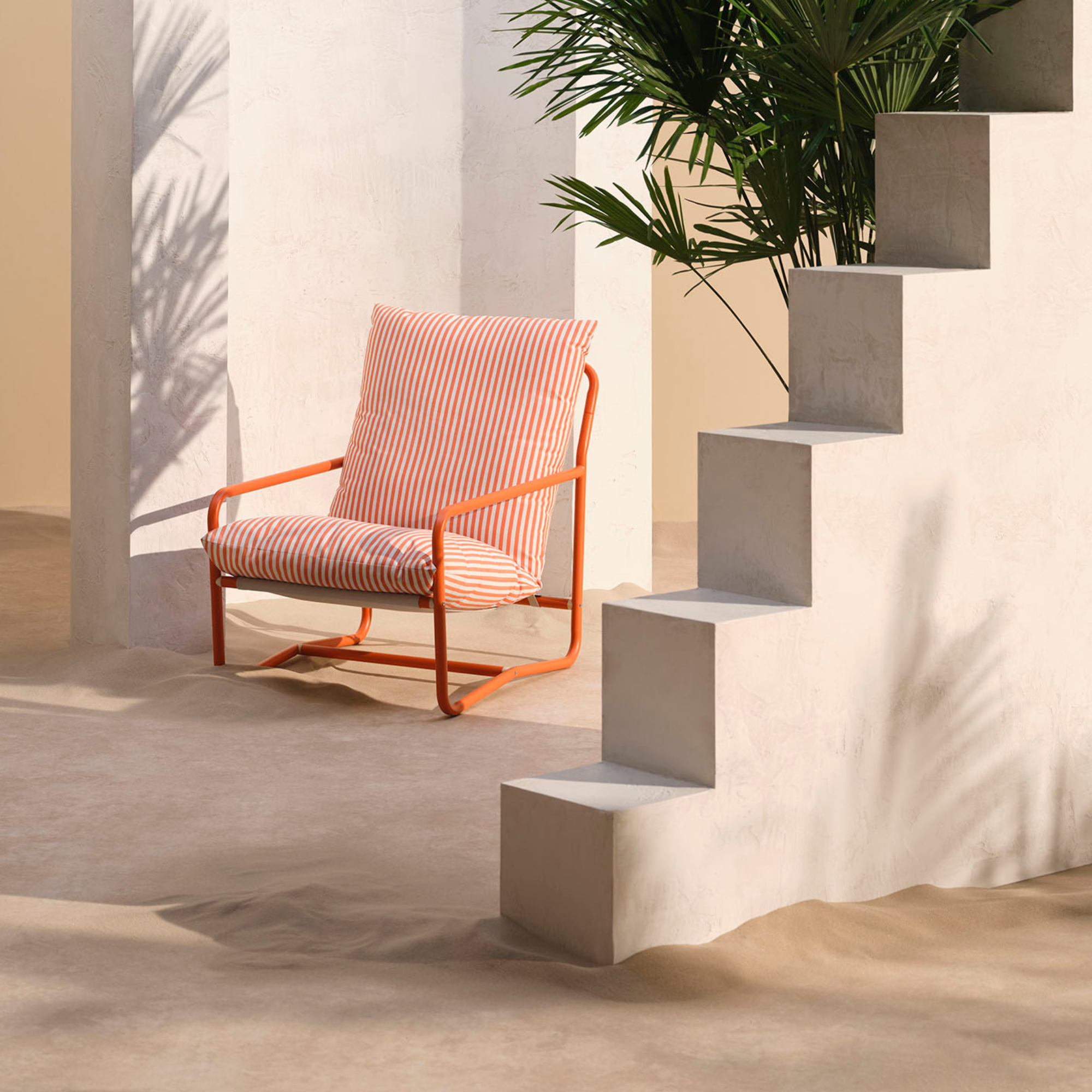 I’ve found the perfect alternative to John Lewis’ sold-out striped garden chair – and you won’t believe where it's from
I’ve found the perfect alternative to John Lewis’ sold-out striped garden chair – and you won’t believe where it's fromJohn Lewis' Sling Garden Chair is one of the most stylish pieces of garden furniture I'd seen – until I tracked down this QVC lounge chair...
By Kezia Reynolds
-
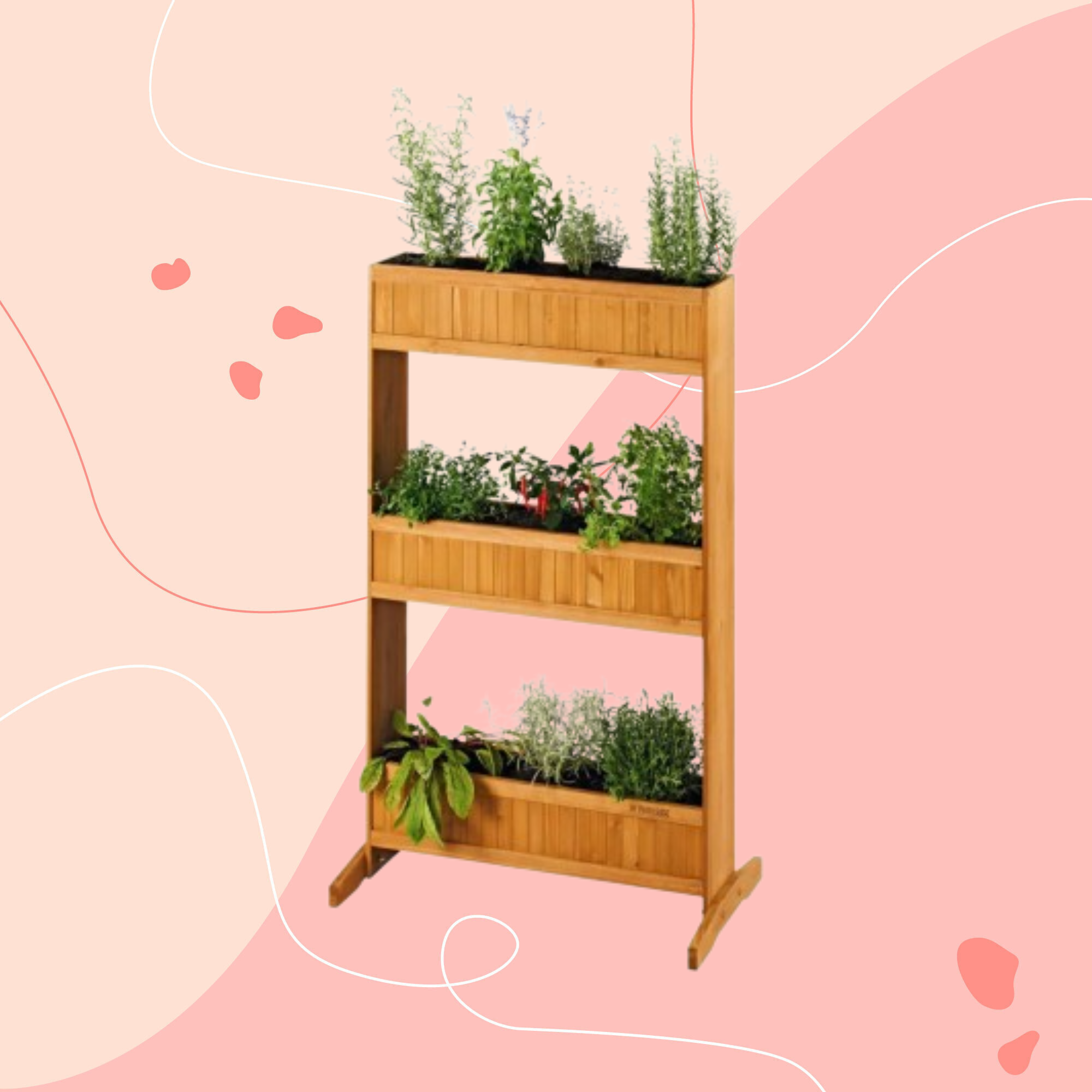 Lidl is selling a smart tiered planter that will unlock extra planting space in a tiny garden or balcony
Lidl is selling a smart tiered planter that will unlock extra planting space in a tiny garden or balconyWhy I've been eyeing this planter up for my tiny garden
By Kezia Reynolds
-
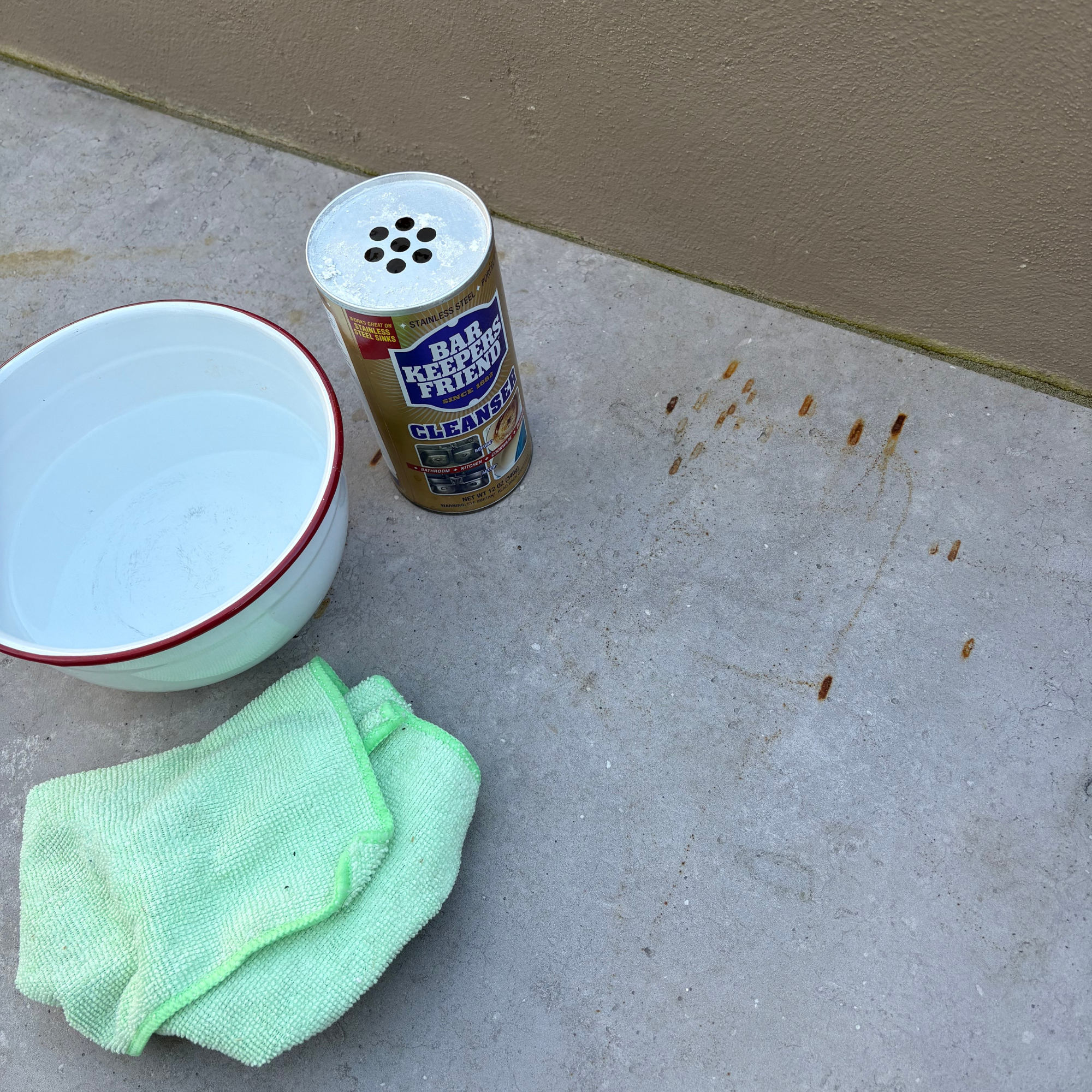 I’ve found the best solution for cleaning stains from a patio - and it’s only £8 on Amazon
I’ve found the best solution for cleaning stains from a patio - and it’s only £8 on AmazonThe stains practically vanish!
By Kezia Reynolds
-
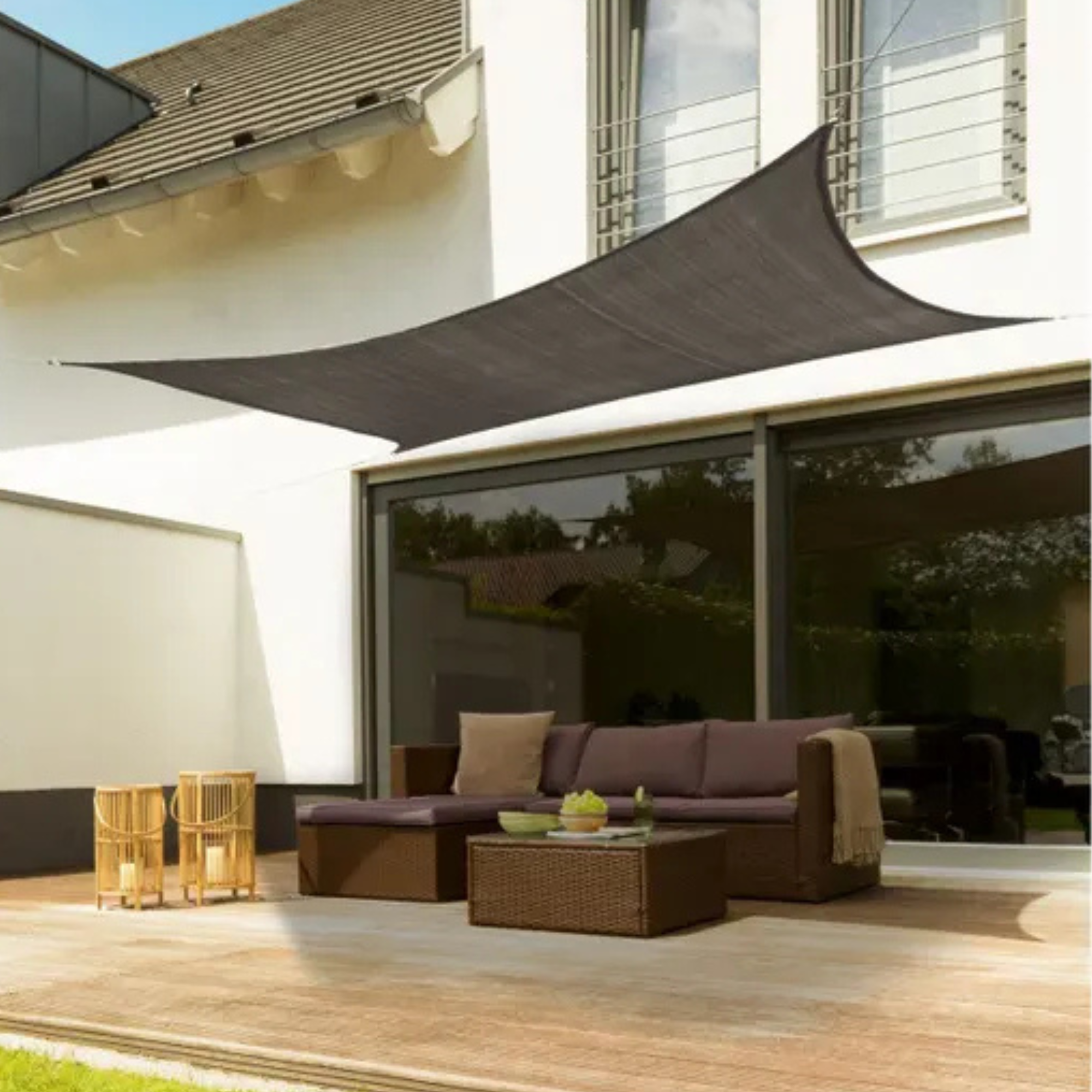 Lidl’s £15 sun sail is everything you need to create a shady oasis in your garden – and it’s on sale right now
Lidl’s £15 sun sail is everything you need to create a shady oasis in your garden – and it’s on sale right nowWith two stylish colours available, the sun sail will make a chic yet practical addition to any of your garden.
By Kezia Reynolds
-
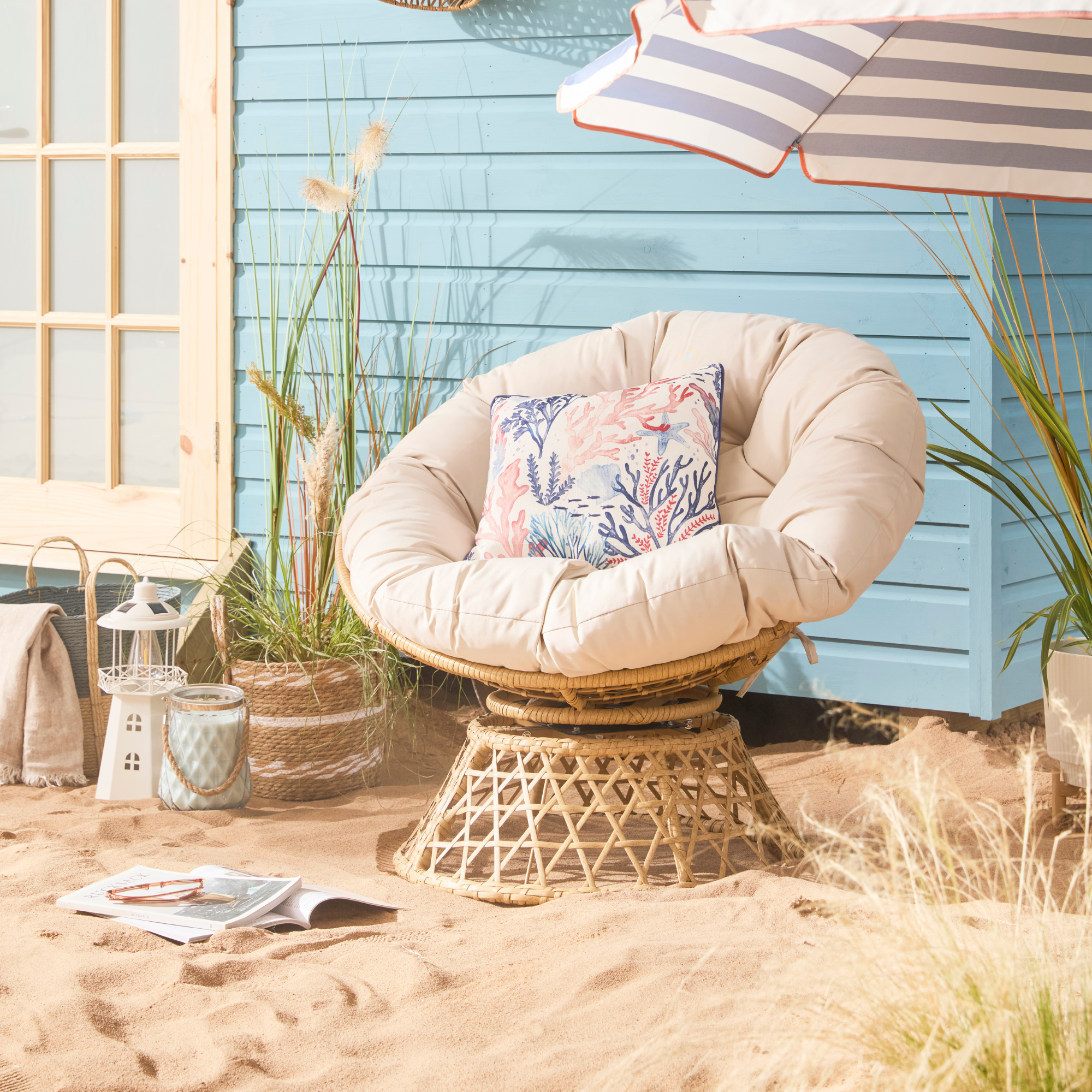 B&M has nailed 2025's breakout garden furniture trend - it's one of the most affordable and stylish I've seen
B&M has nailed 2025's breakout garden furniture trend - it's one of the most affordable and stylish I've seenGet the luxe look for less
By Kezia Reynolds
-
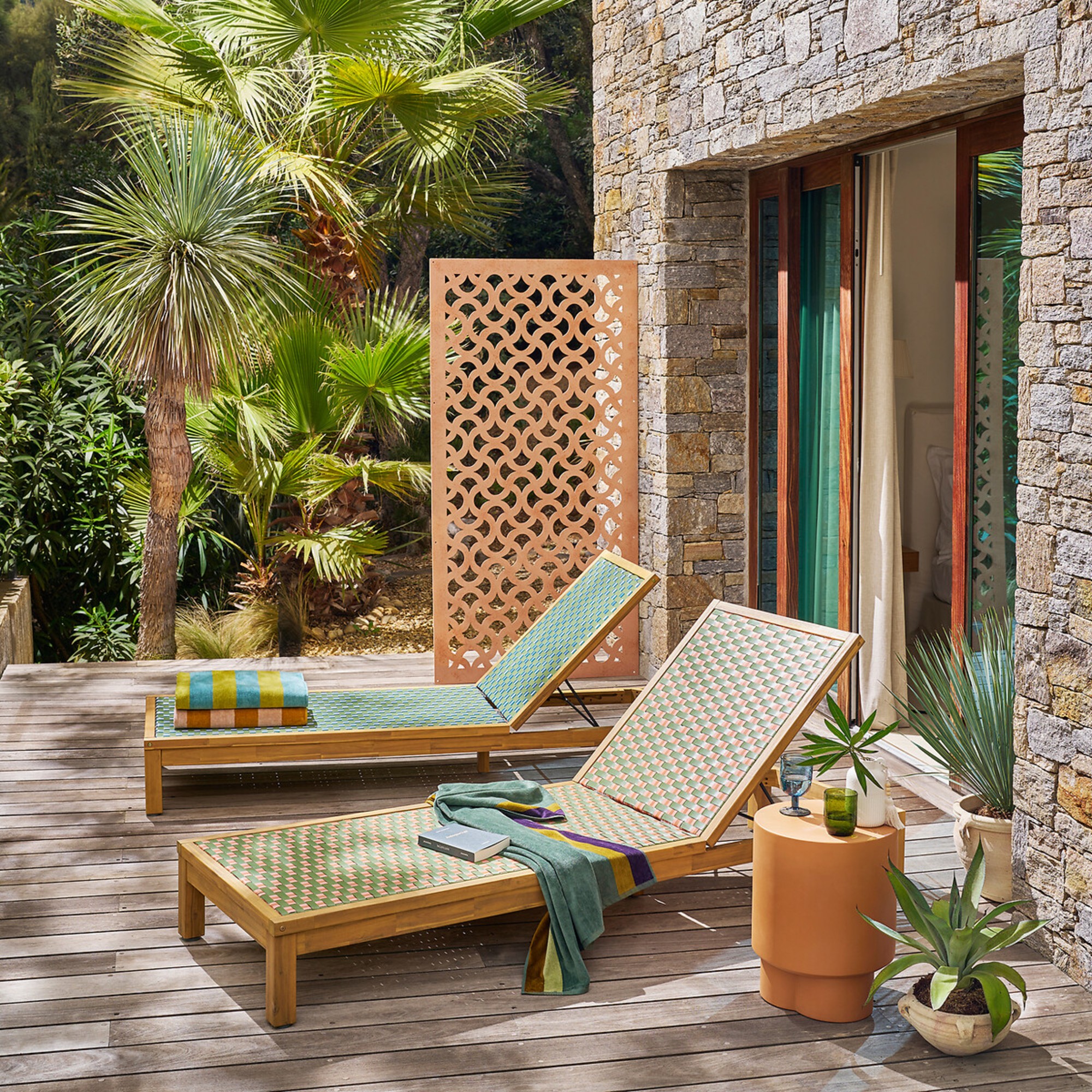 I was shocked to discover a treasure-trove of designer-look garden furniture at La Redoute on sale right now – 6 chic standouts
I was shocked to discover a treasure-trove of designer-look garden furniture at La Redoute on sale right now – 6 chic standoutsGive your garden that high-end look
By Sara Hesikova
